- Travel Planning Guide

United Kingdom Travel Budget - Visit United Kingdom on a Budget or Travel in Style

- Is the United Kingdom Expensive?
- How much does a trip to the United Kingdom cost?
- UK On-Your-Own Itineraries
- Northern Ireland
- UK Hotel Prices
- UK Cities: Hotel Prices by City
- Best Family-Friendly Hotels in the United Kingdom
- Best Hotels for One Week in the United Kingdom
- Best Hotels for First Time Visitors in the United Kingdom
- Best Romantic Hotels for Couples in the United Kingdom
- Best Beach Hotels in the United Kingdom
- Best Pet-Friendly Hotels in the United Kingdom
- Best Hotels for One Night in the United Kingdom
- Best Hotels for Skiing in the United Kingdom
- Best Hotels for Scuba Diving in the United Kingdom
- Best Adults Only Hotels in the United Kingdom
- Best Party Hotels in the United Kingdom
- Best Luxury Hotels in the United Kingdom
- Best Cheap Hotels in the United Kingdom
- Best Hotels for a Weekend Getaway in the United Kingdom
- Best Business Hotels in the United Kingdom
- Hostel Prices & Reviews
- UK Activities
- UK Tour Prices
- The Best Family-Friendly Tours to UK
- The Best Hiking & Trekking Tours in UK
- The Best Historical Tours in UK
- The Best One Week (7-Day) Tours in UK
- The Best 3-Day Tours in UK
- The Best Bicycle Tours in UK
- Tours for Outdoor and Nature Lovers in UK
- The Best Christmas & New Years Tours in UK
- The Best Coach Bus Tours in UK
- The Best Adventure Tours to UK
- The Best Eco Tours in UK
- The Best Sightseeing Tours in UK
- The Best Cultural Tours in UK
- The Best Romantic Tours for Couples in UK
- The Best Tours Under $1000 in UK
- The Best Luxury Tours to UK
- The Best Budget Tours to UK
- The Best Tours for Seniors to UK
- Lake District National Park
- How much does it cost to travel to the United Kingdom? (Average Daily Cost)
- The United Kingdom trip costs: one week, two weeks, one month
How much do package tours cost in the United Kingdom?
Is the united kingdom expensive to visit.
- How much do I need for a trip to the United Kingdom?
- Accommodation, Food, Entertainment, and Transportation Costs
- Travel Guide
How much does it cost to travel to the United Kingdom?
You should plan to spend around $173 (£139) per day on your vacation in the United Kingdom. This is the average daily price based on the expenses of other visitors.
Past travelers have spent, on average for one day:
- $46 (£37) on meals
- $36 (£29) on local transportation
- $190 (£152) on hotels
A one week trip to the United Kingdom for two people costs, on average, $2,427 (£1,948) . This includes accommodation, food, local transportation, and sightseeing.
All of these average travel prices have been collected from other travelers to help you plan your own travel budget.
- Travel Style: All Budget (Cheap) Mid-Range Luxury (High-End)
- Average Daily Cost Per person, per day $ 173 £ 139
- One Week Per person $ 1,214 £ 974
- 2 Weeks Per person $ 2,427 £ 1,948
- One Month Per person $ 5,201 £ 4,175
- One Week For a couple $ 2,427 £ 1,948
- 2 Weeks For a couple $ 4,854 £ 3,897
- One Month For a couple $ 10,402 £ 8,350
Are You an Experienced Traveler?
Help other travelers! Answer a quick question about your past travels. Click here: let's do it!
How much does a one week, two week, or one month trip to the United Kingdom cost?
A one week trip to the United Kingdom usually costs around $1,214 (£974) for one person and $2,427 (£1,948) for two people. This includes accommodation, food, local transportation, and sightseeing.
A two week trip to the United Kingdom on average costs around $2,427 (£1,948) for one person and $4,854 (£3,897) for two people. This cost includes accommodation, food, local transportation, and sightseeing.
Please note, prices can vary based on your travel style, speed, and other variables. If you're traveling as a family of three or four people, the price per person often goes down because kid's tickets are cheaper and hotel rooms can be shared. If you travel slower over a longer period of time then your daily budget will also go down. Two people traveling together for one month in the United Kingdom will often have a lower daily budget per person than one person traveling alone for one week.
A one month trip to the United Kingdom on average costs around $5,201 (£4,175) for one person and $10,402 (£8,350) for two people. The more places you visit, the higher the daily price will become due to increased transportation costs.
Organized tours are usually more expensive than independent travel, but offer convenience and peace of mind that your trip has been planned by a travel expert.
The average price for an organized tour package in the United Kingdom is $284 per day. While every tour varies by total price, length, number of destinations, and quality, this is the daily average price based on our analysis of available guided tours.
- 3-Day Isle of Wight and the Southern Coast Small-Group Tour from London 3 Days - 10 Destinations $ 599
- 4 Day Cornwall, Devon & Stonehenge Small-Group Tour from Bristol 4 Days - 16 Destinations $ 800
Independent Travel
Traveling Independently has many benefits including affordabilty, freedom, flexibility, and the opportunity to control your own experiences.
All of the travel costs below are based on the experiences of other independent travelers.
The United Kingdom is a moderately priced destination to visit. It's about average with most other countries for travel costs. The prices for food, accommodation, and transportation are all fairly reasonable.
Within Europe, which is known to be an expensive region, the United Kingdom is moderately priced compared to the other countries. The overall cost of travel here is comparable to the Netherlands or Denmark.
For more details, see Is the United Kingdom Expensive?
How much money do I need for a trip to the United Kingdom?
The average United Kingdom trip cost is broken down by category here for independent travelers. All of these United Kingdom travel prices are calculated from the budgets of real travelers.
Accommodation Budget in the United Kingdom
Average daily costs.
Calculated from travelers like you
The average price paid for one person for accommodation in the United Kingdom is $95 (£76). For two people sharing a typical double-occupancy hotel room, the average price paid for a hotel room in the United Kingdom is $190 (£152). This cost is from the reported spending of actual travelers.
- Accommodation 1 Hotel or hostel for one person $ 95 £ 76
- Accommodation 1 Typical double-occupancy room $ 190 £ 152
Hotel Prices in the United Kingdom
Looking for a hotel in the United Kingdom? Prices vary by location, date, season, and the level of luxury. See below for options.
Find the best hotel for your travel style.
Actual Hotel Prices The average hotel room price in the United Kingdom based on data provided by Kayak for actual hotel rooms is $113. (Prices in U.S. Dollars, before taxes & fees.)
Kayak helps you find the best prices for hotels, flights, and rental cars for destinations around the world.
Recommended Properties
- Abergavenny Hotel Budget Hotel - Kayak $ 173
- East Horton Farmhouse Luxury Hotel - Kayak $ 114
Local Transportation Budget in the United Kingdom
The cost of a taxi ride in the United Kingdom is significantly more than public transportation. On average, past travelers have spent $36 (£29) per person, per day, on local transportation in the United Kingdom.
- Local Transportation 1 Taxis, local buses, subway, etc. $ 36 £ 29
Recommended Services
- One-Way Taxi Transfer from Stansted Airport to London Viator $ 189
- Windsor Castle - Private Transfer - Pickup & Return Viator $ 291
What did other people spend on Local Transportation?
Typical prices for Local Transportation in the United Kingdom are listed below. These actual costs are from real travelers and can give you an idea of the Local Transportation prices in the United Kingdom, but your costs will vary based on your travel style and the place where the purchase was made.
- Oyster Card £ 27
- Train to Gatwick Airport (2) £ 22
- Toll Way - Mersey tunnel £ 1.70
- Parking £ 1.70
- Parking in Manchester £ 3.00
- City bike hire Liverpool £ 6.00
- Parking £ 2.00
- Ferry to Isle of Wight £ 16
Food Budget in the United Kingdom
While meal prices in the United Kingdom can vary, the average cost of food in the United Kingdom is $46 (£37) per day. Based on the spending habits of previous travelers, when dining out an average meal in the United Kingdom should cost around $19 (£15) per person. Breakfast prices are usually a little cheaper than lunch or dinner. The price of food in sit-down restaurants in the United Kingdom is often higher than fast food prices or street food prices.
- Food 2 Meals for one day $ 46 £ 37
Recommended
- Traditional English Walking Food Tour With London Food Tours Viator $ 95
- Durham Food Tour Viator $ 94
What did other people spend on Food?
Typical prices for Food in the United Kingdom are listed below. These actual costs are from real travelers and can give you an idea of the Food prices in the United Kingdom, but your costs will vary based on your travel style and the place where the purchase was made.
- Lunch for 2 £ 23
- Lunch for 2 £ 46
- Nice lunch at Fleece £ 61
- Coffee (2) £ 4.80
- Turkish Delight £ 1.40
- 2 Coffees and Scones £ 5.80
- Soup at the Pub £ 5.90
- Lunch for 2 £ 17
Water Budget in the United Kingdom
On average, people spend $4.99 (£4.00) on bottled water in the United Kingdom per day. The public water in the United Kingdom is considered safe to drink.
- Water 2 Bottled water for one day $ 4.99 £ 4.00
Related Articles
The united kingdom on a budget.
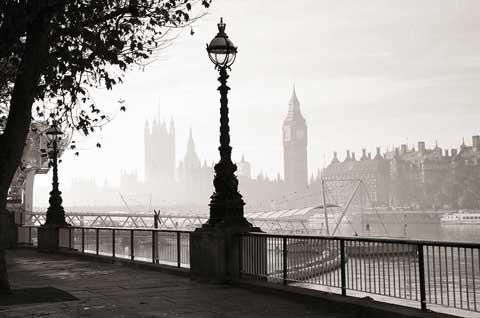
At A Glance
- London is notoriously expensive. It's easily the cheapest city to fly into, but once you arrive you'll find your money quickly disappears. If you're hoping to keep costs down, spend more time in the other areas around the United Kingdom and less time in London. In the more rural communities you'll find that your expenses are far less.
- The countries that make up the United Kingdom each have their own set of bank holidays. Look at a calender before you schedule your trip to make sure that your vacation does not overlap any of these bank holidays. If it does, you will find that prices are higher and attractions are more crowded.
- There are many discount airlines that fly into and out of London and the United Kingdom. If you book tickets through one of these airlines, make sure that you understand all of the restrictions as well as what's included in the price. Some flights fly into inconvenient airports as well, so confirm that there are transportation connections available to where you need to go.
- If you're traveling by train, there are usually discounts available for children or groups. Also, there are regional railcards available if you plan to take several different trips within the area. Research all of the restrictions on these cards prior to purchasing them. If you do decide to buy single tickets, it is best to buy them in advance when the prices are often lower. Great Britain is an area where you will benefit from having a set schedule and itinerary in advance of your trip.
- There are several different bus companies available throughout the country. The buses are usually of high quality and they generally run on schedule. The more popular bus companies include National Express, Megabus, CityLink, and Dot2Dot. Some companies are focused on specific regions, while other serve the entire country. Some companies are also notoriously cheaper than others.
Top Tourist Attractions
Popular foods, more related articles.
We've been gathering travel costs from tens of thousands of actual travelers since 2010, and we use the data to calculate average daily travel costs for destinations around the world. We also systematically analyze the prices of hotels, hostels, and tours from travel providers such as Kayak, HostelWorld, TourRadar, Viator, and others. This combination of expenses from actual travelers, combined with pricing data from major travel companies, gives us a uniqe insight into the overall cost of travel for thousands of cities in countries around the world. You can see more here: How it Works .
Subscribe to our Newsletter
By signing up for our email newsletter, you will receive occasional updates from us with sales and discounts from major travel companies , plus tips and advice from experienced budget travelers!

Search for Travel Costs
Some of the links on this website are sponsored or affiliate links which help to financially support this site. By clicking the link and making a purchase, we may receive a small commission, but this does not affect the price of your purchase.
Travel Cost Data
You are welcome to reference or display our travel costs on your website as long as you provide a link back to this page .
A Simple Link
For a basic link, you can copy and paste the HTML link code or this page's address.
Travel Cost Widget
To display all of the data, copy and paste the code below to display our travel cost widget . Make sure that you keep the link back to our website intact.
- Privacy / Terms of Use
- Activities, Day Trips, Things To Do, and Excursions

How much does it cost to visit the UK? (Budget planning guide)
By: Author Tracy Collins
Posted on Last updated: August 5, 2023
One of the most important steps when planning your holiday is calculating what you need to budget for your trip. Use my guide and estimate the cost of a trip to the UK including flights, accommodation, transportation, tours and more .
When planning any trip the inevitable question of how much it will cost and what to budget for is a huge consideration for most of us. In this article I will go through the main costs you need to budget for when planning your trip to the UK.
Obviously, individual costs will vary depending on your interests and travel style – Are you travelling solo/with family? Are you a luxury or budget traveller? Are you planning to travel independently or with a tour? Etc
As with my UK trip planner (which helps you to plan your visit step by step) this guide to calculating UK trip costs will help you through the process of budgeting in a systematic manner whether you are a budget traveller or looking to splurge on your trip.
Why not download my printable budget trip planner to use as you work through the article?
UK Travel Planning Podcast
Flights to the uk, average accommodation costs, holiday home rentals in the uk, tickets and passes in london, tours and day trips, additional expenses, visit during the shoulder season, budgeting for popular destinations such as london, conclusion – how much does it cost to visit the uk.
Episode #57 : Insider tips for exploring the UK on a budget
Calculating how much a trip to the UK will cost
If you are flying to the UK from outside of Europe flights will probably be the most expensive part of your trip.
It is worth calculating the cost of your flights as early as possible in the budgeting process. I recommend using Skyscanner to find the average prices for the time of year you are planning to visit.
Enter your departure point and destination into the price tracker on Skyscanner and you will discover the *average prices across the month.
* Please to bear in mind that at present flight prices are best estimates and may be affected by Covid-19.
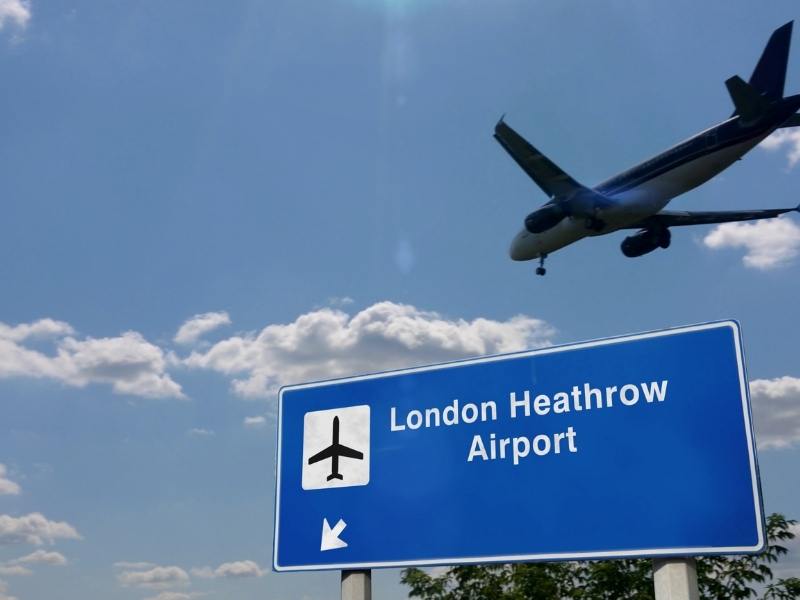
Accommodation in the UK
There are many accommodation options across the UK to suit all travel styles and budgets.
Accommodation in major cities and popular tourist destinations such as the Cotswolds and the Lake District will generally be more expensive but budget options are available if you book as early as possible.
Expect to pay more for accommodation in London than elsewhere in the UK. I recommend staying within close proximity of the main sights in London even though hotels, Airbnb and apartments may be slightly more expensive.
There is nothing worse than having a long day of sightseeing followed by a commute to accommodation on busy public transport.
Here are the average prices per double room per night depending on your preferences:
- Budget – Less than £65 per night (London £90 + per night)
- Mid-range – £65 – 120 per night (London £120+ per night)
- Luxury – £120+ per night (London £200+ per night)
There are a number of budget chain hotels in the UK which provide excellent accommodation options. These include Travelodge, Premier Inn, Ibis, Z Hotels, Holiday Inn and Novotel.
From cosy cottages in the Cotswolds , to log cabins with hot tubs in the Lake District, to castles in Scotland and luxury apartments in London there are many unique holiday homes available to rent across the UK.
Find the perfect holiday home rental for your stay in my accommodation guides to London , England , Scotland and Wales .
Read – UK Accommodation Guide
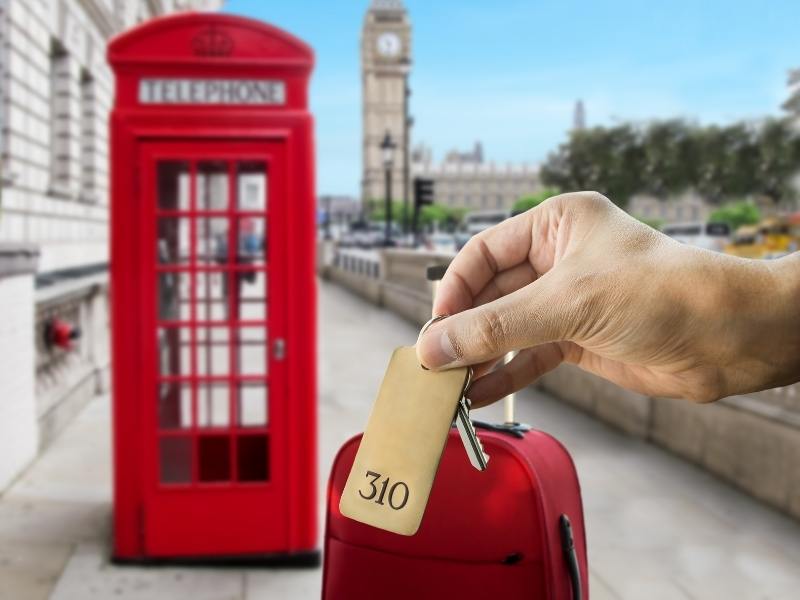
Transportation
If you plan to explore the UK there are a variety of transportation options available.
Renting a car is a great way to explore the countryside and areas which have limited or poor public transport options. However don’t forget to consider insurance, petrol, and parking fees when calculating costs.
Average costs for car hire in the UK per week are
- £100 + a week for a small car suitable for 2 people
- £160 + for a mid size car suitable for 4 people
- £250 + per week for a larger car, people carrier or SUV
Check car rental prices with RentalCars.com
Avoid driving in London (limited parking, traffic jams and the Congestion Charge are just a few reasons why)
If you do plan to pick up a hire car after a few days in London it is cheaper to do this at a train station outside of the capital.
Other ways to save money on car rental include hiring the car for a week or more (prices are more expensive for shorter rental periods) and to return the car to the same location. Of course, this is not always possible but it will reduce costs.
Read – Guide to renting a car in the UK – Practical tips and information
If you plan to visit the major cities across the UK travelling by train is an excellent way to get from A-B-C-D. Purchase tickets in advance (bookings open 90 days before the date of travel) or consider purchasing train passes for greater savings.
Check out the TrainLine for prices.
For budget-conscious travellers there are long-distance coach services to all major airports and cities. Do bear in mind that though this may be the cheapest option it is also the slowest.
Transfers from major airports such as from Heathrow into London can be taken by taxi, train or bus with dedicated express trains connecting to local public transport.
For travel around London purchasing a visitor Oyster Card is recommended prior to arrival. An Oyster Card is a reusable electronic ticket that enables access to London transport including the Tube and buses.
Read more about how to get around in London .
Read more – Guide to transportation in the UK

From fish and chips to pub food to 3 Michelin starred restaurants there are options for every budget in the UK!
To maximise your food budget visit markets, tea shops, pubs and fish and chip shops which can all offer reasonably priced food options. We also recommend looking for accommodation with breakfast included or booking an apartment or Airbnb so you can cater for some of the meals yourselves.
Supermarkets such as Sainsburys , Marks & Spencers and Tesco’s offer ‘Meal Deals’ of a sandwich, drink and packet of crisps/chocolate bar or piece of fruit for between £3 – £5.
Chain restaurants such as Nandos, Frankie and Benny’s, Harvester, Brewers Fayre, Bella Italia, Prezzo, Toby Carvery, Wagamama, Pizza Hut and Weatherspoons are found in major cities and are reasonably priced options.
Be careful with drinks though as it can push up costs. Often eateries will have speciality nights – curry/ steak for example with special offers such as 2 for 1 or a free drink.
If enjoying an afternoon tea is on your UK bucket list there are many options to choose from to suit all budgets and tastes.
You will find many different afternoon teas to choose from in London including traditional (The Ritz or Fortnum & Mason), themed (Harry Potter and Charlie and the Chocolate Factory) or afternoon teas with spectacular views (The Shard) Prices vary considerably but expect to pay on average from £40 a head in London
You can read more about different British foods you may co me across in this article.
Average costs
- Pub meal – £7 -11
- Main course in restaurant – £10 to £20
- 3 course meal in a good restaurant – £40 +

Sightseeing expenses
If you are heading to London the good news is that there are lots of free things to do there – many of the world famous museums and art galleries have no admission charges (there may be small fees for specific exhibits) but entry is free.
If you have a long bucket list of sights to see in London it is worth calculating if the London Pass is a cost-effective purchase.
The London Pass includes entry to 80 of London’s main attractions including the Tower of London , the London Eye , Westminster Abbey and the view from the Shard and could save you over 50% on regular gate prices. Pass holders can also skip the queue and avoid long waits for some of the most popular attractions.
Click here to find out how you could save money with the London Pass
There are a myriad of tours to choose from in London to suit all tastes and interests from walking tours, themed tours, tours with a historical focus, foodie tours or general sightseeing tours aimed at first-time visitors .
Costs vary depending on the group size with small group tours prices from £40 – £200 and larger group tours from £15 plus per person.
Private tours of London and attractions are available and can cost anything from £25 per person upwards.
Day tours to popular destinations outside of London such as the Cotswolds , Stonehenge and Oxford vary again in cost depending on distance, the number of places visited, inclusions and group size. Expect to pay approximately £75 + per person for a larger group tour from London (or any other major UK city)
Private day trips to destinations outside London cost from around £500 + for 4 persons.
If you are on a budget costs for tickets, tours and day trips can really mount up. I recommend identifying which places are the most important for you to visit (for every destination you include in your UK itinerary) and calculating and comparing the costs of an organised tour or day trip with regular gate prices or the cost of travelling to the attraction independently.
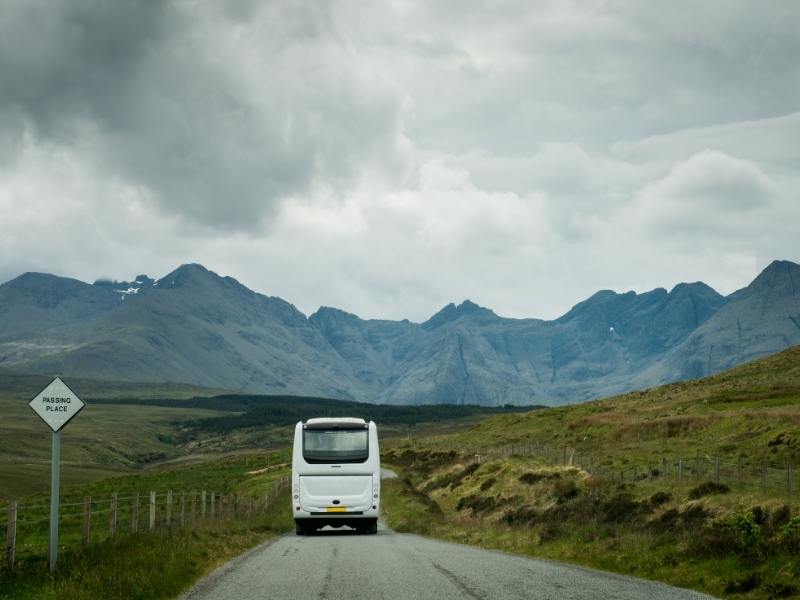
I recommend taking insurance out as soon as your flights are booked. Not only will insurance provide peace of mind in the event of a trip cancellation but it also ensures you are covered for medical emergencies while away.
Travel insurance may also provide coverage for loss or theft of items, flight delays and even repatriation to your country of origin in the event of a medical emergency.
Obviously the cost of insurance will vary depending on your country of residence, your age, any existing medical conditions and level of cover.
We never travel without insurance. It is just not worth the risk.
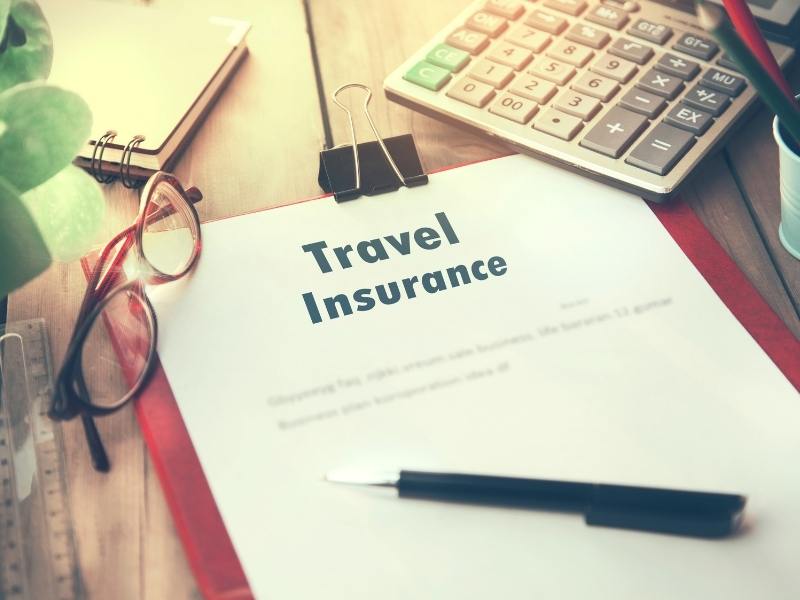
Don’t forget to add a few ££’s a day towards some of the additional expenses you can expect.
Adding an extra £5/10 per day to cover these smaller daily costs should cover it.
- Wifi and internet access charges – The cost of accessing wifi will depend on which option you choose – read my detailed guides to the various options for internet access in the UK
- Tipping – Tipping is not expected in bars. Restaurants 10% of the bill is fine if service was not included in the bill. Black cabs round up to the nearest £
- Storing luggage – £5 for up to 24 hours
- Souvenirs – Budget a small amount towards any souvenirs you may wish to purchase.

How to reduce costs when visiting the UK
If you are visiting the UK during the summer (particularly late July and August) expect prices to be higher.
During UK school holidays (one week at the end of May/beginning of June and 6 weeks from July to early September) prices increase and availability may be limited.
Prices fall during the shoulder season March-May and September-October and the weather is generally not too bad (expect showers and sunny spells)
London is an expensive city to visit but there are ways to reduce your costs.
- Purchasing an Oyster Card and using public transportation (which is the easiest, quickest and cheapest way to get around London )
- If you plan to visit a number of popular sights and attractions a London Travel Pass may be the most cost effective way. Read my complete guide to the London Pass and save money when you visit London
- There are lots of free things to do in London including many of the world’s best museums, such as the British Museum or the Natural History Museum. Read more – 32 free things to do in London
- Read my budget guide to London for more tips and suggestions.
- Read my guide to visiting London for first time visitors which includes some essential tips to reduce costs
While everyone’s trip budget will be different depending on the length of your stay, accommodation choices, transportation, travel style etc this budget guide will have given you an idea of the cost of your trip to the UK.
To help you further why not download my UK Budget Planner sheet ? The sheet will enable you to keep track of all your expenses as you plan your trip.
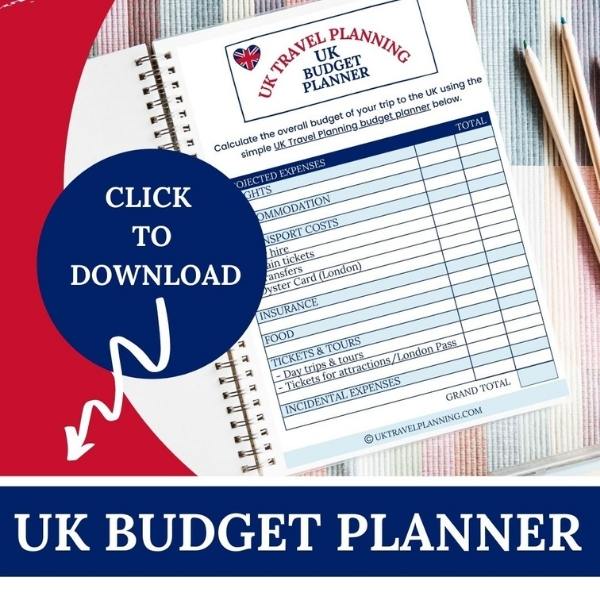
Finding the Universe
Travel tales, photography and a dash of humor

How Much Does it Cost to Travel in the UK?
Last updated: April 19, 2024 . Written by Laurence Norah - 28 Comments
One of the most common questions we’re asked from people who read our UK guides, and in particular our detailed one week and two week UK itinerary posts is: how much does it cost to travel in the UK?
Of course, the answer is – it depends! There are a lot of factors to consider, from your travel style (budget to luxury) through to who you are travelling with (solo, family, group), and the kind of travel you want to do (self-drive, group tour, etc).
Then of course there are the attractions you are interested in visiting, the time of year you visit – there are just so many variables to take into account. Which makes answering the question quite tricky!

But we’re going to tackle it anyway. In this post I’m going to go through all the major costs you need to consider when planning a trip to the UK, and provide budget ranges for each of them.
This should give you some good ideas of what a trip like this might cost. We’ll also provide some money saving tips for each area.
Let’s get started.
In summary, you are looking at between £75 and £200 per day per person for travel in the UK. These costs will of course vary depending on your travel style, sights visited, type of transport used and dining choices.
In this post we’re going to go into detail on the four main cost areas you need to consider when travelling in the UK. These are:
- Accommodation
- Sightseeing
We’re going to look at each of these individually to give you some cost ideas. At the end of the post we’ll then put these together to give ideas of a total trip cost for the UK for a few different travel styles.
1. Transport Costs for Travel in the UK
There are a number of ways to travel in the UK. To start with, there is an excellent public transport network in the UK which includes long distance bus services (also called coaches in the UK), a good passenger rail network and multiple low cost airlines.

Our preferred way of travel in the UK (and abroad), is to self-drive where possible. We find it gives us the greatest flexibility, letting us stop when we want to, and not have to be strict about following a timetable. Of course, depending on the type of trip you want to do, this might not be the best option – if you’re only visiting cities for example, we recommend using public transport to get between them.
Price of Car Rental in the UK
- Budget : £100 – £150 per week for a small car that will fit two people and luggage
- Mid-range: £200 – £300 per week for a mid-range car that will fit four people and luggage
- High-end: £400 – 600 per week for a small SUV or car capable of carrying more than five people
Money Saving Tips for Car Hire in the UK
Book by the week. Most car hire companies offer better rates if you book for a week rather than a few days. Of course, there’s no point booking for a week if you only need the car for a day or two, but you might find that seven days is cheaper than six for example. We have also found that when we book a car for two or three weeks, many hire car companies have given us a free upgrade to say thanks for our custom.
Pick up your hire car on leaving the city. In the UK, there is really no need to have a hire car in a city. UK cities are for the most part easy to get around either on foot, or have excellent public transport networks. Your hire car will likely spend its time costing money in an expensive parking lot. So just book your rental for when you leave the city.
Don’t pick it up at the airport. If you can avoid picking up your hire car at the airport, you will usually save money. Most car hire companies charge higher rates for cars picked up at the airport – it’s a combination of a trapped market and a convenience factor. Compare prices between the airport and the city, and if you can get to the city easily from the airport, and the price is better, do that.
Avoid one-way trips where possible. Most car hire companies will charge you extra if you want to drop the car off in a different place to where you picked it up. We have actually done this many times – the key is to find a car rental company that charges minimal one-way fees. In our experience, Enterprise is pretty good for this.
Don’t forget the fuel costs. Fuel in the UK is relatively expensive compared to somewhere like the USA. Thankfully, the majority of cars are quite fuel efficient and distances aren’t that great. However, fuel prices vary wildly. Generally, the cheapest fuel can be found at supermarkets, such as Asda, Tesco and Sainsbury’s. The most expensive fuel is usually along the motorways, at the service stations.
Avoid additional fees: The way that hire companies bump up their revenues is by charging you for a lot of addons when you come to pick up your car. These can include everything from a GPS unit through to extra insurance cover. Many of these are not truly necessary, and some travellers might find that their credit card already offers things like Collision Damage Waiver insurance. So definitely check in advance what addons you need, so you don’t fall prey to high pressure sales tactics at the rental desk.
Use a comparison service: For car hire, we usually use a comparison search site that lets us compare prices across multiple providers at the same time. We recommend searching for your car rental on Discover Cars here . They compare a range of providers so you can find the best deal for your trip. Just make sure when comparing prices that additional fees like one-way drop offs are covered.
Consider your age: Car hire companies around the world give better rates to what they consider to be more experienced drivers. Younger drivers, particularly those 21 and under, can pay hefty surcharges for car rental. Usually, drivers over 30 get the best rates. If you are travelling in a group of different ages, consider renting the car in the name of the older driver. Just be aware that you might need to pay more to add additional drivers, so be sure that the named driver is happy to do all the driving if necessary.
Price of Public Transport in the UK
Public transport in the UK is difficult to put a price on as there are huge variables depending on where you are going, how far in advance you book, and how you travel (bus, train, plane) – as well as if you choose to travel in standard class or a more premium class.
As an example though, a one way single ticket from London to Edinburgh by train (~4hr 30 min) would cost you around £150. If you book the same trip in advance, you could go on the same journey for as little as £25 one-way.
A similar journey by coach would take between 10 and 15 hours, and cost between £16 and £80.
You could also fly, which would take around an hour of actual flight time (although you would need to factor in the time of getting to and from the airport and check-in). Flights with a budget airline from London to Edinburgh for example start from as little as £13 (with no luggage!), and go up to around £200.
Money Saving Tips for Public Transport in the UK
Book in advance. For planes, buses and coaches, the best prices are available if you book well in advance, and if you can be a little bit flexible with your timings. Avoid travelling at peak times (usually 0630 – 0930 & 1530 – 1830).
Use the right booking site. For train tickets, we recommend The Trainline, which we have found to be the most user friendly option. Opt to pick up your tickets from the station to avoid postal charges, or use their e-ticket option. They also let you book tickets for destinations all across Europe, and so are a handy one stop shop for all your ticket needs.
For long distance buses, there are a number of operators to choose from. The two we would recommend are National Express and Megabus , both of which offer a wide range of routes across the country.
For flights, we suggest a good comparison engine that includes the budget airlines – we recommend Kiwi.com .
Go carry on only. If you choose to fly, packing carry-on only can save you a good amount in baggage fees. Just be aware that UK airlines have different baggage size standards to other airlines around the world, so always check with the airline first.
2. Accommodation Costs for a UK Trip
Accommodation is one of the major costs for any travel, and a UK trip is no different. Of course, the question “how much does accommodation cost in the UK?” is not straightforward, and there are multiple factors to consider – everything from time of year through to the level of comfort and service you need will affect the price.

There are lots of options for accommodation in the UK, so whatever your budget, we are confident you will be able to find something to suit your travel needs.
Our costs are based on two people sharing a private room, but there are other options of course, including dormitory accommodation in hostels, if you are looking to save even more.
Price of Accommodation in the UK
- Budget: £40 – £100 for a budget room for two people, usually this would be an en-suite room. Dorm rooms are also available, think around £25 per bed.
- Mid-range: £100 – £150 would get you a nice room for two in most parts of the country
- High-end: £250+ would normally be the starting point for a room in a luxury property, although deals can be had, see below for more information
Money Saving Tips for Accommodation in the UK
Travel off-peak. If you can travel in the quieter times of year, such as January and February, particularly in less visited parts of the UK, you can score some remarkable deals. For example, we stayed in this luxury hotel near Inverness for £70 per night including breakfast in February. The same room in June is over £300!
Check the hotel website for deals. Whilst we love booking engines for their convenience, sometimes we find that a particular property has a special deal running that’s only available if you check their website. These might be things like three nights for the price of two, or free breakfast if you book direct.
Book online. We use booking.com extensively for our travel accommodation. After making five bookings, we qualified for their extra “Genius” discount, which often scores us an extra 10% off. We also like that they list everything from hostels to apartments to hotels of all categories, making it an excellent one-stop shop for our accommodation needs.
Use Alternative Accommodation Providers . There has been an explosion in options in the accommodation market over the last decade or so. If you’re on a tight budget, definitely consider websites like Couchsurfing. There are lot of options out there to help you find great value accommodation, so take advantage of them. Take a look at our guide to AirBnB Alternatives and holiday accommodation websites for the UK for more inspiration.
3. Food Costs for a UK Trip
The UK used to have a pretty poor reputation when it came to food, but thankfully over the last ten – twenty years this has improved a great deal, and you can now get really fantastic meals as you travel. That said, dining in the UK is not particularly cheap, although there are some ways to reduce the costs.

One thing to note, for US readers in particular, tax is always included in menu prices in the UK, so what you see is what you pay. Service is not included, but tips are appreciated.
Price of Dining in the UK
- Budget: £5 – £10 per person per meal at a fast food restaurant or takeaway style meal
- Mid-range: £10 – £30 per person per meal at a mid-range restaurant or nice pub style meal
- High-end: £35+ per person per meal at a nice restaurant
Money Saving Tips for Dining in the UK
Drink less. Drinking with a meal can really push your budget up. Even soft drinks can be quite expensive in the UK, so if you can stick with tap water with your meal, you can save a fair bit of money.
Find deals. Whilst not as common as say France, you can still find good deals in the UK for dining out. Many restaurants will offer early-bird dining specials for example, for dining at times earlier than usual, such as 5pm – 6.30pm. Others may have special menu deals, where you can get a two or three course meal at a discount at lunchtime.
Fast food. Don’t forget the fast food chains if you’re looking for cheap and easy food on the go. As well as reducing your time spent eating if you’re having a full day of exploring, these can be very cheap. To really save money, skip the extras, and find the really cheap menu items. For example, you can normally buy a single hamburger at McDonald’s for under £1. Two of those and a medium fries will keep you going for a while.
Small cafes. If fast food doesn’t do it for you, consider stopping off at a small cafe. Often attractions have these, as do department stores and other high-street locations. Normally they have a small selection of well priced menu items, such as a soup and a sandwich, or a baked potato with a filling. Usually these meals will come in at under £5 per person.
Supermarket meals. If you’re ok with a cold meal, a reliable cheap option is to get a meal from a supermarket such as Marks and Spencer. These places usually have an extensive range of sandwiches and other snacks, often very well priced. You’ll be able to get a sandwich, snack and a drink for under £5 in most cases. Plus you can then find somewhere pretty to eat it and dine al fresco! Other options for cheap eating include chains like Eat and Pret a Manger, which also offer soups and hot items.
Cook for yourself. To really save money on your food in the UK, you should opt to cook for yourself if you can. Obviously this will need a bit of forward planning, as you’ll need to book accommodation that includes cooking facilities, such as a self-catering holiday cottage, or a hostel with a kitchen. Cooking for yourself can really save you money though.
Eat the included breakfast. If you’re staying at a hotel or bed and breakfast that includes a breakfast (or other meal), make sure you take advantage of it, as that saves you the cost of a meal.
4. Sight-seeing Costs for a UK Trip
Sight-seeing costs in the UK will really vary depending on what you are interested in seeing. There are lots of free attractions, including many museums and outdoor sights, that won’t cost you anything at all.
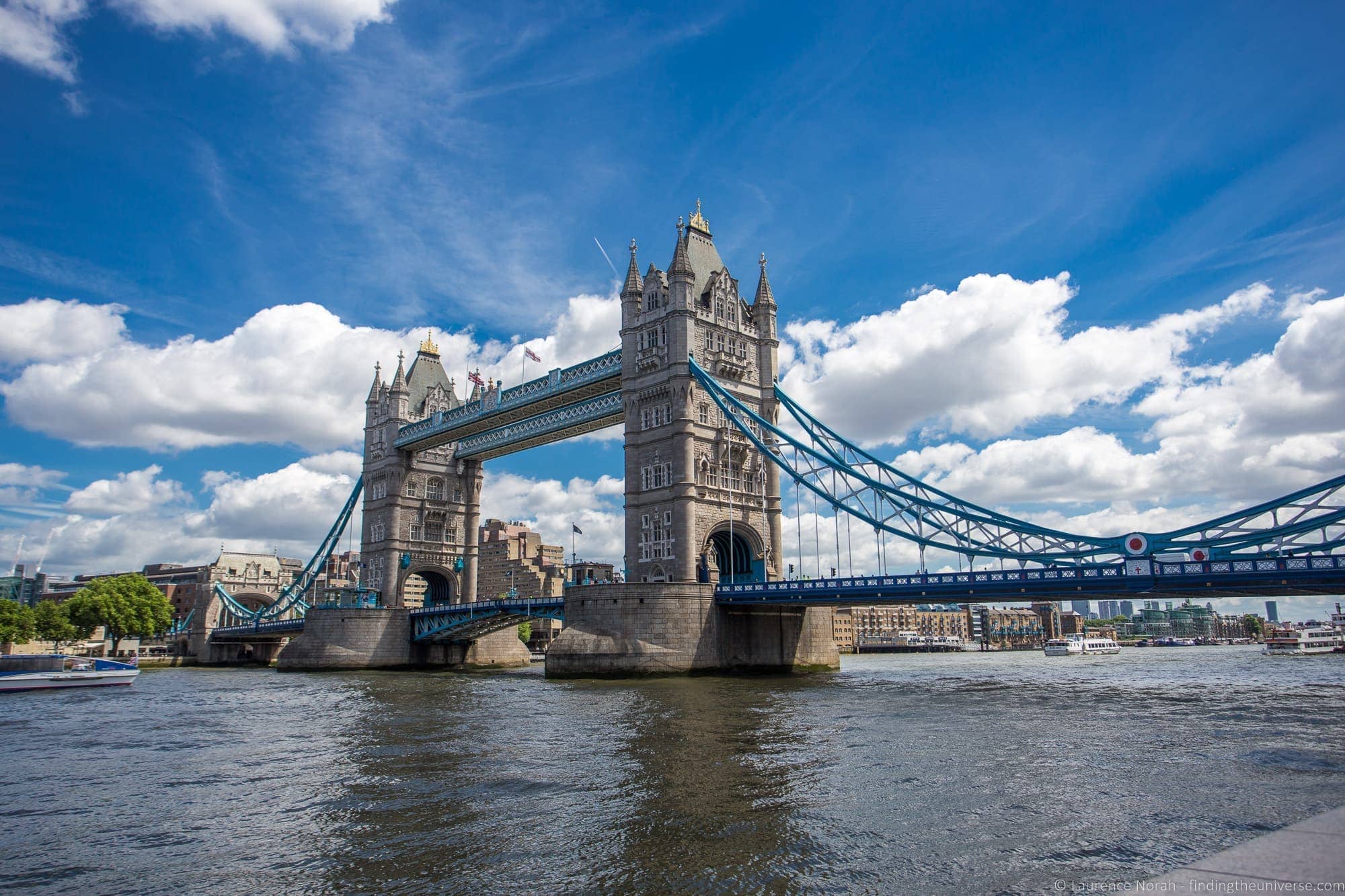
There are also other trips and activities, such as day trips to specific sights you might want to see (for example Stonehenge from London ) that you will want to book a tour for. If you are thinking about taking a tour, we can recommend Rabbie’s , who offer small group tours in the UK & Ireland. We also recommend Viator who offer a huge range of tours in the UK .
Costs for sight-seeing in the UK
Costs will vary tremendously depending on what you are interested in. Museums and other attractions like stately homes range from free to around £25 per person at the upper end of the scale, although £6 – £12 per person is a more common cost.
Note that many of the major museums in the UK are free, like the Natural History Museum in London, or the National Museum of Scotland, for example.
If you decide to take a tour, the price of these will vary depending on a number of factors. Private tours will cost more than group tours for example, and multi-day tours will be more expensive than day trips.
As a guide, a day trip from London, such as a visit to Stonehenge will cost you between £50 and £110 , depending on duration and inclusions. This price is fairly reflective of day trip prices from cities around the UK – see our guides to day trips from Edinburgh , day trips from Glasgow and day trips from Inverness for more inspiration.
Multi-day group tours will cost more, usually in the region of £75 – £150 for each day of the trip. When comparing tours like this, always check what is included and what isn’t – for example, some tours will include accommodation and attraction entry, and others won’t.
Private multi-day group tours are the most expensive option of all, and you should look to budget in the region of £500 – £1000 per day for this sort of tour, which will usually include the cost of your driver and vehicle, with accommodation costs added on top.
Money Saving Tips for Sight-seeing in the UK
Get a City-based Attractions Pass. If you’re planning on visiting a lot of attractions in the same city, you will probably find that an attractions pass will save you money. For London, we recommend the London Pass (see our review here ). For Edinburgh, there’s a good pass that covers Edinburgh’s royal attractions .
Get a society membership. For certain types of attraction in the UK, such as historical homes and castles, you can save money with a membership to the organisation that manages the properties.
In the UK, there are a number of these, but the key organisations are the National Trust and English Heritage .
For English Heritage, visitors to the UK can purchase either a full year long English Heritage membership or a special English Heritage Overseas Visitors Pass .
The latter pass is specially designed for overseas visitors who might want to visit a few attractions on a visit, but who might not get the full value from a yearlong membership.
For the National Trust, the story is similar. You can either join the National Trust, or get a visitor pass here .
Visit on free Days. Sometimes museums and attractions in the UK will have free days where you can visit for free. Check the attraction’s website or social media accounts for details of when these might be.
Use qualifying concessions. Many attractions offer discounts to different demographics – for example based on your age or eligible military service. It’s always worth checking if you qualify for a discounted price. If so, make sure you carry proof of your eligibility, for example, if it’s an age-based discount, carry official government issued ID like a driving license or passport so you can prove your age.
In Summary: How Much Will a UK Trip Cost you?
Assuming two people are travelling together in the UK, using a hire car to get around and staying in private hotel rooms with en-suite facilities, our suggested costs per person per day would be as follows:
- Budget : £50 – £100
- Mid-range: £100 – £250
- High-end: £300+
So, for a trip like our suggested two week UK itinerary , you would likely be looking at the following total approximate costs for two people for a two week UK trip.
- Car hire: £300 – £600 + fuel (~£100 – £200)
- Accommodation: £700 – £2000+
- Food: £300 – £1000
- Sight-seeing / tours: £200+
- Total: from around £750 per person
Of course, you can spend a little less or a lot more, depending on your travel style, but these ballpark figures should give you an idea of costs.
Also, don’t forget to include any visa costs, travel insurance, additional sightseeing, nice meals out, souvenirs, and of course, the cost of getting to and from the UK.
Further Reading for Planning your UK Trip
Hopefully in this post we’ve answered the question of how much does it cost to travel in the UK. To further help with planning your UK trip beyond the budgeting side, we have a lot more content that we think you will find useful.
- For itinerary ideas covering the whole UK, check out our 1 week and 2 week UK itineraries . These are self-drive itineraries, so do check out our guide to driving in the UK for tips.
- If you’d rather not drive yourself, we have a UK itinerary by public transport
- If you’re heading to Scotland, we have a 7 Day camping itinerary for the North Coast 500 , as well as a detailed North Coast 500 Planning Guide and a guide to our favourite B&B’s on the North Coast 500
- A two day Edinburgh itinerary & 21 Highlights in Edinburgh
- A Two Day Glasgow and Loch Lomond itinerary
- A guide to 10 of the best Stately Homes in England
- For London, we have some detailed itineraries to help you plan your visit. These include a 1 Day London Itinerary , a Two Day London itinerary , a 3 day London Itinerary and a Six Day London itinerary
- The top Harry Potter sites in London
- The Best Photography Locations in London
- Tips on Buying and Using the London Pass
- Our favourite Things to Do in Kensington
- A guide to things to do in Portsmouth
- The Highlights of Oxford
- Things to do in Cambridge
- Visiting Blenheim Palace and the Cotswolds
- 20 Things To Do in Dublin
- A Guide to Touring the Scottish Borders
- If you want a physical (or digital!) book to accompany your travels, then Amazon do a good line in UK Travel Guides , and there is naturally a Lonely Planet and a Rough Guide to the UK available.
And that’s it for our guide to how much it costs to travel in the UK! We hope you found it useful – as always you’re welcome to share your questions and feedback in the comments below.
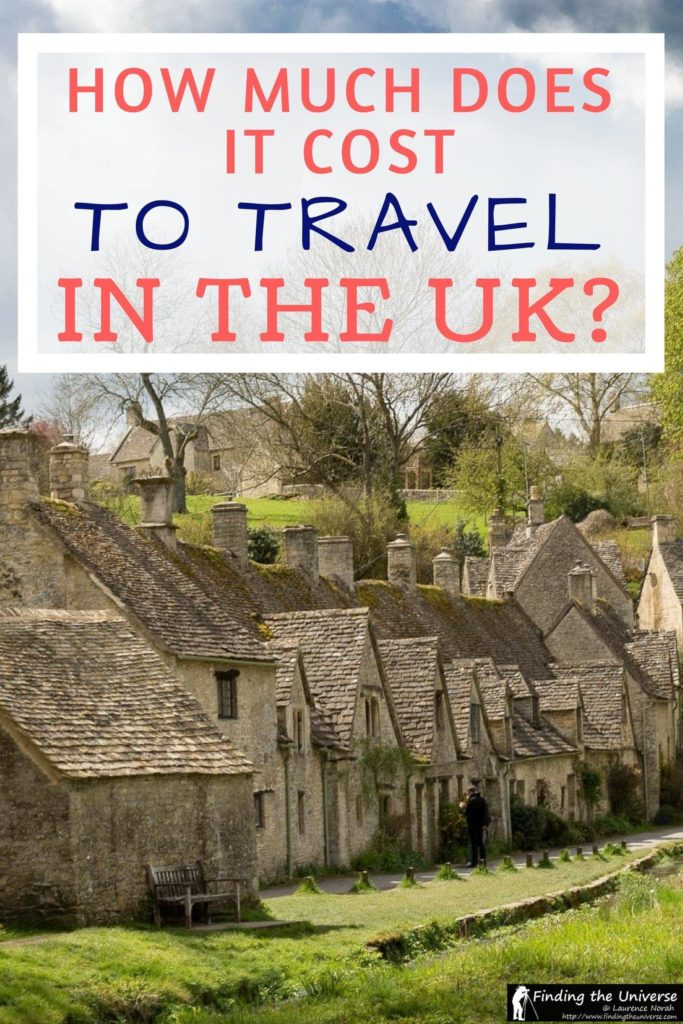
Enjoyed this post? Why not share it!
There are 28 comments on this post
Please scroll to the end to leave a comment
Toni Hendrix says
7th October 2022 at 12:59 am
Hello, A friend and I are in our 70’s and would like to do a month+ trip perhaps in April-May 2023 so that we can see a bit more, thinking Wales, Scotland, England, Ireland. Sort of a retirement blowout! Have we lost our minds…definitely! We’re debating about various ways to travel, where to stay,etc. One of us has had Covid but no shot and the other has all shots and still got Covid. Do we both need to be vaxed? We both have Donne ancestral research and would like to see castles in our lineage: Compton in Devonshire, Bamburg, Strickland & Devonshire. She has taught school overseas and I have been. flight attendant and done some travel. Hopefully, we can figure out a rational way to do this. Is there any hope? Thank you!
Laurence Norah says
7th October 2022 at 2:23 pm
Sounds like a fun adventure! So currently you don’t need to be vaccinated to travel to the UK. You can see the latest rules here , which you will want to check before you travel. You will also want to check the rules for the country you are traveling from so you can get back home. I’d also add that things can change very quickly, so vaccination requirements for example might be reintroduced if a new strain appears. So if possible being vaccinated might make that easier, because getting a vaccination whilst abroad is likely to be challenging. Whatever you choose though, good insurance is a good idea to cover any eventualities.
I definitely think you can do the trip you mention. Given that your trip is to a few different locations you might find renting and driving a car is going to be the easier option for getting around.
Have a great time!
Ann E. McCollister says
5th February 2022 at 6:36 am
I’m 70 years old, not well off, always wanted to go to UK (England, Ireland, Scotland). Saved $2000 (!), want to make a trip with my 3 sisters before I die. I appreciate all the advice and suggestions you’ve made and will share with my sister’s and investigate further. Cheerio and much thanks, I want to do what YOU do! You needn’t reply but encouragement would help. Afraid my dream won’t be fulfilled. Annie
6th February 2022 at 12:45 pm
It’s lovely to hear from you. I am sure that with your budget the three of you will be able to make the trip happen. There are lots of good value accommodation. I’d recommend looking for good value B&B’s where breakfast is normally included. If you are happy to drive, renting a car between the four of you will be quite inexpensive. Alternatively, we can also recommend the Rabbie’s Tour company – they do really good value tours all around the UK and are a great alternative to driving yourself.
I am very sure you will be able to realise your dream. The main cost is likely to be your flight, but luckily there are lots of routes. I’d suggest signing up for something like Google Flights and their alerts for prices.
I’m also happy to offer more specific input and help if you need it, it’s no trouble at all. If you have any questions, fire away!
21st May 2020 at 4:50 pm
Dear Laurence,
Have you ever balanced the costs (in time and money) of car rental,parking and accomodation in UK?
Car rental is relatively unexpensive compared to public transport and hotels whilst unconvenienlty located accomodation sites tend to be more affordable.
Many times, having a car allowed me to stay on those far away locations and swiftly reach my daily tourist destination by car.
On the other hand, parking availability and costs sometimes bars me from reserving otherwise most convenient accomodation sites.
21st May 2020 at 4:55 pm
I haven’t done the maths precisely. The challenge is that public transport costs can vary hugely, depending on how far in advance you book it. The same ticket booked 8 weeks in advance might cost £20, wheras the same day price might be £200. So if you are able to plan in advance and be flexible with dates and times, it can be more affordable.
We prefer to travel by car if we can though, as it’s just a lot easier for the more remote locations. Public transport in the UK is great for cities and towns, but outside of this you start to rely on slower and less regular local bus routes, which will really slow a trip down. For our UK itineraries, my suggestion is usually to start in London, and to only pick up the hire car after you have done the sightseeing in the city. Outside London, parking is generally a lot easier to find and less expensive.
10th February 2020 at 7:19 am
This is great information! Many thanks. I am planning 19 nights in GB in August with my daughter. We want to drive with a train perhaps from London to Edinburgh. One travel agent here in Australia told me he couldn’t find a hire car company that would add my daughter as a second driver due to her age. She will be 21 with an open licence for more than a year. Surely this is not so!!! Are you able to reassure us that we will both be able to drive?
10th February 2020 at 1:28 pm
Thanks very much! So the legal age for renting a car in the UK is 21, however unfortunately many car hire companies set a minimum age of 25 or 23. This is down to each company having their own policy and approach to risk. However, some companies will rent to drivers at 21, such as Sixt – so it is possible. However, they charge hefty fees for the privilege, of up to £39 per day! I wasn’t able to find any other rental companies, but it’s possible if you contact local smaller car rental agencies that you might be able to find a better deal.
Best of luck, and have a great trip!
Sue Knauf says
13th January 2020 at 4:18 pm
So pleased to have come across your informative website. We (my husband & I) are looking planning a trip to the UK. We prefer rural rather than cities & hope to spend most of our time exploring Scotland (including some of the outer islands) & Ireland. We tend to ‘wing’ our travels rather than be highly organized. Our quandry is whether to hire a car & find accommodation each night or hire a small campervan. I have heard campervans can be a pain on the narrow roads in rural area’s. We are looking to travel probably in July. Would your answer be different if we came in May?
13th January 2020 at 4:27 pm
Lovely to have you here as a reader 🙂
So a smaller campervan will generally be fine as long as you are used to driving a manual vehicle and don’t mind reversing and driving on the left. I believe based on where your e-mail address suggests you are from that neither of these will be an issue for you.
I would say that based on your preference to wing it, that a campervan is going to make more sense. Whilst it will be more expensive than a normal car, you can get smaller vehicles ( Spaceships just launched in the UK with a range of options for example) which should be reasonably priced and easier to manoeuvre. However, the main reason for suggesting this is that winging it in the Scottish Highlands in both May and July can be a risky approach. Accommodation can book out weeks and sometimes months in advance, and not booking ahead definitely runs the very real risk of having to drive for hours to find somewhere to stay (accommodation is spread out and the roads are slow). Combine this with the fact that there are large areas with no cell phone coverage, and this would end up just being a stressful trip.
So for that reason alone, having your own bed is going to be a lot less stressful.
May and July are both popular times. May is usually busier for normal accommodation, whilst July tends to have more families and campers. May is our favourite month to travel in Scotland though, as you can usually avoid the dreaded midge 😉
We have a range of content on Scotland to help with your planning, I’d say our NC500 camping itinerary would be a great starting point.
Let me know if you have any more questions!
Renuka Rajput says
7th January 2020 at 12:51 pm
Hello I am really glad to find your website. We are planning to travel UK in March as planing to few liverpool matches at that time. Will it be good time to travel or will it be too cold to explore tourist destination.
Thanks in Advance.
7th January 2020 at 3:10 pm
Hello Renuka,
I will try to help 🙂 It is hard to answer because everyone has a different definition of cold. If you are coming from a tropical country, then March in the UK might seem cold, however if you are travelling from somewhere like Canada, it will feel warm!
Generally, March should be fine though. Temperatures will likely be between 12C and 16C, which in my opinion is good for sightseeing. March is also a good month as it won’t be too busy with tourists. You will want to bring some warm layers and also either an umbrella or raincoat, as rain is likely. That said, rain is a possibility all year in the UK.
I hope this helps 😀
11th April 2019 at 6:05 am
Hi, really great sharing with much details for travelling in UK. Wonder if you have any suggestions for travel to Manchester and thereabouts?
11th April 2019 at 11:25 am
I haven’t visited Manchester for a while, despite living there for a period many years ago. So I don’t currently have any up to date recommendations, however, we hope to visit Manchester soon and fix that!
Rosemary Anderson says
23rd March 2019 at 6:50 pm
I love your site and have found great ideas for my family’s upcoming trip.
One question: We are doing a home exchange with a family who has offered to let us use their car–which is great. But we have looked (quite a bit!) online, and it seems to be very difficult to get insurance on anything other than a rental car. Do you have any suggestions?
Thanks, Rosemary
23rd March 2019 at 7:10 pm
Hi Rosemary!
Thanks very much 🙂 So this is an interesting question. Normally in the UK the car insurance policy is associated with a specific driver (normally the owner and then any other drivers) rather than some countries where you insure the car and then anyone can drive it.
My initial response is that I’m not sure exactly how you would go about doing this. Based on my experiences driving friends cars in the UK, they have had to ring their insurance to add me as a named driver. However, I don’t know exactly how this works with non-UK licenses, nor do I know how it might affect their insurance should something happen.
I did a search, and whilst this service does exist, it doesn’t seem to cover US license holders, only holders from specific countries like those in the EU, Switzerland, Australia and New Zealand.
The only company I found that does seem to include US drivers was this one: https://www.hertsinsurance.com/walkabout/
I have never used them and I can’t comment on what they cover or if they are any good, but it might be worth a try!
Good luck 🙂
13th January 2019 at 2:36 am
Wow, just found your itinerary and I’m going to follow it, with a couple minor tweaks to the schedule when I go June 1st with my husband and son. Thanks for all the great advice and mapping it out. Mona
13th January 2019 at 9:48 am
Our pleasure Mona – have a great trip, and let us know how it goes!
Paul Gadsdon says
23rd December 2018 at 4:24 pm
You will find UK car hire half the price of the US. You can get a small car for £80 a week
Also dont forget all UK national museums (about 300 or so), are free
23rd December 2018 at 4:32 pm
Thanks for your input! I’ve updated the budget hire car price. I think £100 – £150 is reasonable, I’ve taken a look on various sites and for various dates, and it’s a definite struggle to get a week of car hire with unlimited mileage for much less than that.
I’ll make a point about the free museums too 🙂
Thanks again!
Cheang PY says
26th November 2018 at 2:00 pm
Awfully glad to have found your website. Very informative. 6 of us retirees (age 57-80) are planning to self-drive UK for 2 weeks, visiting Cornwall and Wales. Would like advice on accommodation (homestay/airbnb?), etc. Thank you.
27th November 2018 at 11:21 am
Our pleasure. With a group, an AirBnB or similar would be a great idea, as you can usually get more for your money. Our only advice is to only book places with good reviews. The best option is simply to search a site like AirBnb (we also have a list of Airbnb alternatives here, ) for the dates and number of people for the destinations you want to visit, and work from there.
Have a great trip!
19th January 2019 at 4:14 pm
Thank you for your suggestions. We are also looking at mpv for hire for six. Is it cheaper to get the vehicle at the airport? Thank you.
19th January 2019 at 4:24 pm
My pleasure. If you mean in comparison to booking in advance, I would say in general it will be more expensive booking car hire at the airport.
If you mean will it be cheaper picking up from the airport or from another location, usually it is cheaper to pick up a car from an location different to the airport, as airport car hire is nearly always more expensive than city locations, due to the convenience.
Samara says
29th July 2018 at 9:55 am
Great read! I appreciate the in depth breakdown. Just got to London and am going to be following your 2 week itinerary religiously!
29th July 2018 at 12:28 pm
Thanks very much! Have a great trip – do let us know if you have any questions 🙂
Ryan Smith says
3rd May 2018 at 3:03 pm
Thanks a ton for all the useful information about cost of traveling in UK, it saves me so much time Googling for the guide like this. Thank you 🙂
3rd May 2018 at 7:11 pm
My pleasure – have a wonderful trip!
Leave a Reply Cancel reply
Your email address will not be published. Required fields are marked *
Let me know when there's a reply to my comment (just replies to your comment, no other e-mails, we promise!)
Subscribe to our monthly Newsletter where we share our latest travel news and tips. This also makes you eligible to enter our monthly giveaways!
We only ask for your e-mail so we can verify you are human and if requested notify you of a reply. To do this, we store your data as outlined in our privacy policy . Your e-mail will not be published or used for any other reason other than those outlined above.
Reimbursements
Employee Travel Expenses in the UK
Business trips are often a welcome change from the daily office routine or working from home. However, they are always associated with costs and subsequent administrative work to settle the corresponding expenses . We provide an overview of what employees need to consider when it comes to travel expenses and how they can best benefit from tax exemption.
What are employee travel expenses?

Travel expenses arise from work-related activities away from the place of residence and the primary place of work. The primary place of work is considered to be the place where the employee works on a regular basis. If companies bear the costs for such business trips by employees, they can be deducted from tax under certain circumstances. If the conditions are met, business trips are exempt from tax. Both the employee and the employer can benefit from this if they provide evidence of the travel costs incurred.
But what kind of costs count as travel expenses? In summary, these are all costs that incur during the trip and serve to ensure its successful completion. This means not only travel costs, but also expenses for food and accommodation to keep up one’s strength. In addition, there are ancillary travel expenses such as parking fees and telephone charges.
Which travel expenses can employees claim?
- public transport
- hotel accommodation
- food, as well as drinks
- congestion and toll charges
- parking fees
- professional telephone calls
- printing costs
If these expenses are incurred during a business trip and for business purposes, they can be exempted from tax. Expenses of a private nature that arise during a business trip, for example from a private visit to a museum, cannot be claimed.
Employee travel expenses reimbursement

If employees want to settle their travel expenses, they have several options. The most profitable one: they forward their travel expenses in full to their employer, submit all the relevant receipts , and the employer transfers the total amount to the employee’s account. The employer can then post the expenses and have them exempted from tax.
In case the employer is reluctant to pay for the employees’ travel expenses, they can reclaim the tax from the government themselves under certain conditions. However, to claim back the tax, HMRC has specified certain rules for employees:
- The travel expenses exclusively incurred for work-related reasons.
- The employee has covered these travel expenses personally.
- The employer does not reimburse the employee for the travel expenses.
- The employer has not provided the employee with a suitable alternative.
- The employee pays taxes.
To benefit from tax exemption on certain expenses, the employee must of course be a taxpayer in the first place. To claim tax exemption for expenses, these must be submitted with supporting documents to HMRC within four years of the end of the tax year in question.
When is the trip a business trip?

To understand under which conditions employees can deduct their travel expenses from tax, it is first necessary to clarify what actually constitutes a business trip – and what does not. For HMRC, there are two permissible types of business travel. Option one: the traveller visits a customer in another city on behalf of the company, for example, to maintain contacts – a time-limited trip that serves a specific purpose. Or the employee travels to a certain location to carry out work: e.g., a construction site or a temporary workplace such as a branch office.
The daily commute from home to the permanent place of work, however, is explicitly not considered a business trip and cannot be recognised for tax purposes. Furthermore, if you do not travel from home to your usual place of work in the morning, but to another place that is the same or a shorter distance away, this travel cannot be exempt from tax either – only business trips that go beyond the usual distance.
Permanent or temporary workplace compared
The duration of the employee’s activity at a specific place of work is the decisive factor for the question whether a trip to work is tax-deductible or not. Commuting to the permanent place of work – for instance, to the office where the employee usually works and which is mostly specified in the employment contract – is not deductible from tax. However, if the employee must work temporarily somewhere else, for example at a branch office in another city, the journey to this place can be claimed for tax purposes. But this only applies for 24 months: if the employee is required to work there for a longer time, the place is considered to be the new permanent place of work.
Reimbursements with Moss: More freedom for your team
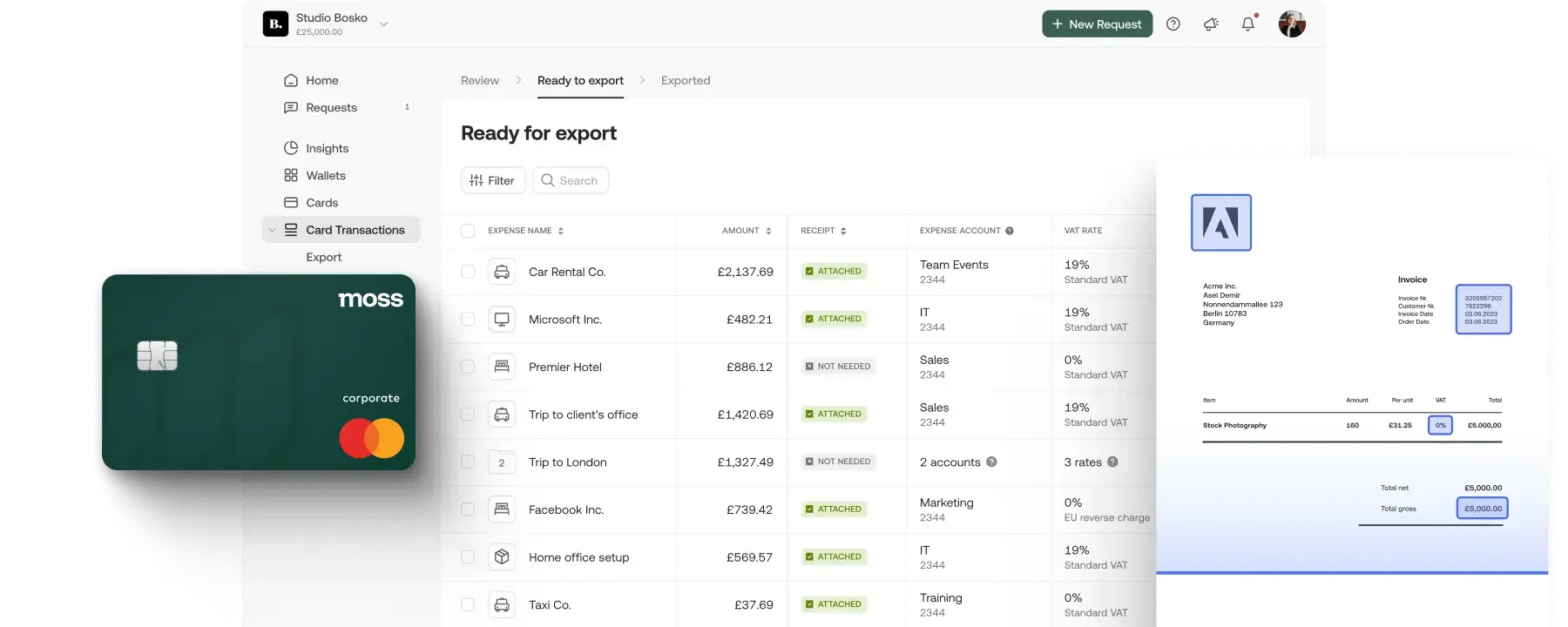
When does work from home turn into a permanent workplace?
Since the onset of the corona pandemic in 2020, work from home has become increasingly popular. More and more employers are allowing or even encouraging their employees to work from home. It is becoming very common to let employees choose their preferred place of work themselves. But what does this mean for employees in terms of tax?
It depends: if the employee only works from home because of a personal decision, every trip to the office is considered commuting – and is thus not tax-deductible. But if the employer decides that the employee must work from home – for example, because there is no office at all anymore – the home office is the new permanent workplace. Every trip to another place of work then becomes a business trip and is deductible from tax.
Which travel expenses can be deducted by employees?

Not all kinds of expenses incurred on a business trip are tax-deductible. Private costs arising from a business trip may not be submitted to HMRC. It is not always that easy to distinguish between private and business-related costs – often the transition is fluent. So: what is deductible and when?
The expenses being deductible are:
- work-related travel not to or from the permanent workplace
- dinner and breakfast when a business trip runs overnight
- accommodation costs during a several-day business trip
- food and drink on a business trip; either the actual costs or the fixed rates set by HMRC
- all travel expenses related to official business, such as: public transport, congestion, toll and parking charges, telephone calls, printing costs, etc.
Non-deductible are:
- the regular way to the permanent workplace
- travel expenses not strictly related to work, e.g., the private visit to a museum, a sightseeing tour, or recharging a travel card
- penalty charges, e.g., tickets for illegal parking or speeding
Costs for food
To keep your strength up on a business trip, daily meals obviously play a crucial role. However, when away from home, it is difficult to cook or prepare food on your own, which is why frequent restaurant visits are customary. But: HMRC does not automatically exempt every restaurant visit. Instead, it has set limits up to which the costs can be deducted each day.
The respective limit depends on the length of the journey.
There is also a cap of £5 for breakfast. For dinner after 8pm the cap is £15.
Business travel mileage
If employees use their own vehicle for business travel, they can, up to certain limits, recover the costs from their employer – who in turn can claim them for tax purposes. Employers can pay the so-called “approved amount” without having to report it to HMRC. These payments are referred to as mileage allowance payments.
The approved amount is calculated by multiplying the employee’s annual mileage by the rate applicable to the vehicle. This rate depends on two factors: the type of vehicle and the total number of miles driven on duty.
Up to the approved amount, the employer can bear the employee’s expenses without having to declare this to HMRC. If, on the other hand, more expenses are covered, these additional costs are considered as employee salary and lead to corresponding tax payments.
If the employer does not pay the mileage allowance payments or not the full amount up to the approved level, the employee can claim the difference for tax exemption – also known as mileage allowance relief. In other words: the employee’s business travel mileage is either paid in full by the employer or the employee can claim tax exemption.
Moss: business travel made easy

Those who have completed a business trip do not want to spend a lot of time afterwards settling their travel expenses, submitting applications to their employer, or having to go through the hassle of declaring them in their tax return.
With Moss, there is a way to help employers to make work easier for their employees: through smart expense and invoice management that makes expense reports obsolete. This is because Moss gives employees the freedom to pay for all work-related expenses independently and responsibly during a business trip using a corporate card . Thus, travellers do not have to lay out the costs for accommodation, food, and transport, but can conveniently pay with a real or with a virtual corporate card – with an individual budget limit precisely tailored to the trip.
All receipts from the trip can be uploaded instantaneously via the web or mobile app – and the tedious expense report becomes completely superfluous. This allows employees to focus entirely on their work from the beginning to the end of the trip. It also saves time for the accounting department.
Reimburse with Moss: Give freedom to your team
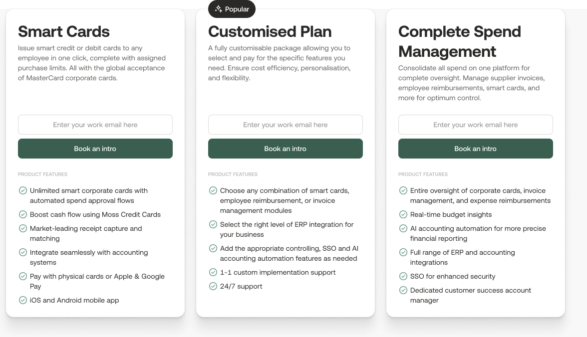
Employee travel expenses are costs incurred by an employee on a business trip – for example, for means of transport, meals, or accommodation. The trip must be work-related and the external work assignment must not last longer than 24 months. Otherwise, the travel destination is considered a permanent place of work to which a trip is not tax-deductible.
Employees can either have their travel expenses reimbursed by their employer or submit them to the tax authorities themselves to benefit from a tax exemption. To have the costs reimbursed by the employer, all receipts for the trip must be collected and passed on. If the employee pays the costs personally and is indeed a taxpayer, a tax exemption can be claimed from HMRC.
All costs incurred on a business trip for professional reasons can be deducted – from transport costs to toll and congestion charges or parking fees to meals. This also includes overnight stays, charges for business telephone calls, or printing costs.
If employees use their own vehicle on a business trip, they can either have these costs covered by the employer or have them exempted from tax. The annual amount is calculated depending on the number of miles travelled and the type of vehicle.
For a business trip, you can either claim lump sums for meals or the actual costs – but only up to a certain limit. For a journey of 5 hours or more the limit is £5, for 10 hours or more it is £10 and for 15 hours or more it is £25. Breakfast can be deducted at £5 and dinner after 8pm at £15.
A business trip is defined by HMRC either as a short trip with a clear purpose – such as meeting a client somewhere other than the permanent workplace – or a longer trip to another place of work, such as a branch office. However, the maximum length for such external duty is 24 months.
- Latest Posts
Our digital content is for information purposes only and does not constitute legal or tax advice. All content is compiled with the utmost care. However, they do not replace binding advice and are not guaranteed to be correct or complete. We do not assume any liability. For individual advice, please consult a lawyer or tax advisor.
Related Posts
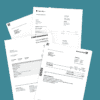
Data Protection | Imprint | Terms & Conditions | Cookie Consent
This card is issued by Transact Payments Limited pursuant to licence by Mastercard International Incorporated. Transact Payments Limited is authorised and regulated by the Gibraltar Financial Services Commission. Mastercard is a registered trademark and the circles design is a trademark of Mastercard International Incorporated.

Save up to 500 Hours on Paperwork 🙌 50% Off for 3 Months. BUY NOW & SAVE
50% Off for 3 Months Buy Now & Save
Wow clients with professional invoices that take seconds to create
Quick and easy online, recurring, and invoice-free payment options
Automated, to accurately track time and easily log billable hours
Reports and tools to track money in and out, so you know where you stand
- Online Accountants
Easily log expenses and receipts to ensure your books are always tax-time ready
Tax time and business health reports keep you informed and tax-time ready
Track project status and collaborate with clients and team members
Set clear expectations with clients and organize your plans for each project
Client management made easy, with client info all in one place
FreshBooks integrates with over 100 partners to help you simplify your workflows
Send invoices, track time, manage payments, and more…from anywhere.
- Businesses With Employees
- Businesses With Contractors
- Self-Employed
- Freelancers
- Marketing & Agencies
- Accounting Partner Program
- Collaborative Accounting™
- Accountant Hub
- A Beginner’s Guide to MTD
- Reports Library
- FreshBooks vs Quickbooks
- FreshBooks vs Xero
- Invoice Templates
- Accounting Templates
- Business Name Generator
- Help Center
- Business Loan Calculator
- Markup Calculator
- VAT Calculator
Call Sales: +44 (800) 047 8164
- All Articles
- Productivity
- Project Management
- Making Tax Digital
Resources for Your Growing Business
Hmrc travel expenses – guidelines to claim tax in the uk.

Whether you’re flying to a convention or driving to meet a client, there’s a chance you’ll need to spend on travel as a part of your business. In many cases, this business travel qualifies as an eligible expense that you can deduct from your profits when you file your income taxes. By familiarising yourself with the HMRC travel expenses guidelines for employers, employees, and self-employed people, you can make the most of this expense deduction and save your taxes.
Key Takeaways
- Business travel expenses are costs you pay when you travel for work.
- If your travel expenses are exclusively for business, you may be able to claim them as an HMRC expense deduction.
- Eligible expenses include transportation, accommodation, and meals while travelling for business.
- Employers don’t need to pay tax on reimbursements for employee travel expenses for work.
- Employees usually submit a travel expense claim to their employer, then claim any remaining amount from the HMRC.
- Self-employed people can claim travel expenses against their profits on their income taxes.
- Travel to a temporary workplace is eligible for travel expenses, but commuting to a permanent workplace is not.
- In lieu of claiming travel expenses reimbursement with receipts, the HMRC offers a per diem option.
Table of Contents
What are Travel Expenses?
Travel expenses basic rules, travel expenses for employers, travel expenses for employees, travel expenses for the self-employed, what are permanent and temporary workplaces, what are per diem rates, what is the 24-month rule for hmrc, how to claim travel expenses from hmrc, start managing your expenses with freshbooks.
- Frequently Asked Questions
Business travel expenses are costs you’ve incurred while travelling for work. This includes everything from accommodation to meals, so long as the expenses are exclusively related to your business. It’s important to note that there’s a difference between business travel expenses and personal travel expenses—for example, if you add a few days of personal holiday to the end of your work trip, expenses incurred during the personal time won’t be eligible for deduction.

The primary rule for HMRC travel expense deductions is that any costs you claim must be necessary and exclusively for your business. This means that you can’t really claim tax relief for things that are a mix of business and personal or expenses that aren’t necessary for your business. However, so long as your expenses are for the purpose of your work trip, they’ll likely be eligible. Some common eligible HMRC expenses are:
- Hotels and accommodation
- Airfare and other transport ticket costs
- Vehicle mileage (for personal vehicles)
- Parking costs
Private vs Business Travel
Business travel is travel that’s exclusively for the purpose of conducting business and is necessary for the success of your business. For example, if you must travel to meet a client or to view a production site for your business, your travel, accommodations, and meals on this trip would all qualify as work expenses. Private travel is anything outside of that—this could be trips taken for personal interest or adding a few days onto a business trip. Private travel and ordinary commuting aren’t eligible for HMRC deductions.
As an employer, there may be times when you require your employees to travel for business.
Understanding the reimbursement of travel expenses helps you claim the right deductions from the HMRC. Commonly, employees will pay their travel expenses directly and then submit an expense claim to you so the business can reimburse them. As the employer, you don’t need to declare or pay taxes on the amount you reimburse employees. Paying for an employee’s travel expenses qualifies as an exemption.
If you’re paying for business travel expenses, you’ll often submit an expense claim to your employer so they can reimburse you for your travel costs. Ideally, your employer will reimburse you for the full amount of your expense reports, but in cases where this doesn’t happen, you can claim the remaining amount as tax relief when you file your income taxes. Remember to keep any receipts or expenses so that you can submit them to your employer or to the HMRC as needed.
If you’re a sole trader, self-employed, or a contractor, you can claim tax relief from your HMRC travel expenses rates as a deduction from your taxable income. The types of things you can claim are the same as for employers and employees—public transport, accommodations, meals, etc. When you file your annual income taxes, you can hold your travel expenses against your profits to reduce your overall tax liability.
Looking for ways to simplify your tax filing? Discover how FreshBooks takes the pain out of tax preparation for helpful tips on navigating tax season.
Knowing the difference between permanent and temporary workplaces is important in ensuring you claim the appropriate travel deductions. For HMRC purposes, a permanent workplace is somewhere an employee regularly goes to do work. This could be an office, a place of business, a home office, or a mixture of these. A temporary workplace is somewhere an employee goes for work duties of a short-term nature. This might be travelling to meet a client or to an event or showcase related to their business. Commuting to a permanent workplace doesn’t qualify as business travel, whereas going to a temporary workplace is eligible.
Per diem rates are a collection of HMRC-set rates for travel expenses. These are used as an alternative to reimbursement for actual costs. Rather than saving all your receipts, you simply have to prove that you engaged in business travel, and you can receive reimbursement at a set rate for your business travel costs. The HMRC has rates for travel inside the UK, as well as some for outside the UK and for specific global cities. This can be a quick and easy system for claiming business travel costs without tracking exact expense amounts.
The 24-Month Rule is an HMRC rule that dictates that a temporary workplace only qualifies as a temporary workplace if an employee works there for 24 months or less. If this rule is met, travel expenses for travel to the temporary workplace can be claimed. However, if work at this temporary workplace lasts for more than 24 months, it’s considered to be a permanent workplace and is no longer eligible for business travel expenses deductions.
In order to claim travel expenses from the HMRC, you need to include them as a business expense claim when you file your annual income taxes. If you’re an employee, you’ll typically submit an expense claim to your employer first and then claim any remaining amount from the HMRC in the event that your employer doesn’t fully reimburse you. You can then choose to file a claim with your receipts for the exact amount or claim per diem rates. FreshBooks accounting software helps you track your expenses so you can accurately claim your various business expenses for travel when you file.
Understanding HMRC regulations for claiming travel expenses can help you make the most of this tax exemption and save money on your income taxes. Whether you choose to submit your receipts or claim the travel expense per diem, keeping track of your travel expenses is important for accurate filing. FreshBooks expense tracking software helps you track everything from transportation and hotel accommodation to mileage on business trips. It’s also MTD-compatible, so you can quickly and easily organise your claims and file your taxes online. Try FreshBooks free to streamline your filing for employers, employees, and self-employed filers.

FAQs About HMRC Travel Expenses
Looking for more information about HMRC travel expenses? Explore answers to frequently asked questions about HMRC mileage rates, proof of business travel, and more.
How much can I claim for travel expenses?
There is no specific maximum for your travel expenses so long as you have proof of business travel. There are set mileage rates—45p on the first 10,000 business miles and 25p on anything beyond that for those using a personal car for business travel. These rates apply to cars and vans; motorcycles and bikes are claimed at a different rate.
What is the HMRC mileage rate for 2023-24?
The HMRC mileage rate for 2023-24 is 45p on the first 10,000 business miles and 25p on anything over 10,000 in the tax year. FreshBooks accounting software offers a mileage tracker to help you keep track of miles logged for business travel.
What are the 45p travel expenses?
The 45p travel expense is the HMRC mileage rate for business travel using a personal vehicle. This applies to the first 10,000 miles of business travel; anything beyond that is 25p. This per diem can be claimed from the HMRC as a business travel expense when you file your taxes.
How much travel can you claim without proof?
While you don’t always need receipts for your exact expenses, you do need to prove that your travel was for business. If you have no proof of business costs at all, then you can’t claim your travel; if you have proof of business travel but not exact receipts, you can claim per diem rates.
More Useful Resources
- HMRC Tax Refund
- How To Contact HMRC About Tax Code
- How Does HMRC Know About Undeclared Income?

Levon Kokhlikyan, ACCA
About the author
Levon Kokhlikyan is a Finance Manager and accountant with 18 years of experience in managerial accounting and consolidations. He has a proven track record of success in cost accounting, analyzing financial data, and implementing effective processes. He holds an ACCA accreditation and a bachelor’s degree in social science from Yerevan State University.
RELATED ARTICLES

Save Time Billing and Get Paid 2x Faster With FreshBooks
Want More Helpful Articles About Running a Business?
Get more great content in your Inbox.
By subscribing, you agree to receive communications from FreshBooks and acknowledge and agree to FreshBook’s Privacy Policy . You can unsubscribe at any time by contacting us at [email protected].
👋 Welcome to FreshBooks
To see our product designed specifically for your country, please visit the United States site.
HMRC travel expenses: guidelines for business travel & tax in the UK
)
Published on January 16, 2024
)
Corporate travel has developed a love/hate reputation. For employees, it's exciting to get out of the office and change up the routine. For employers, travel is a key driver of growth. Meeting prospects and clients in person is still incredibly effective , even if feels a little old fashioned.
So there's plenty to love.
And yet, managing travel - and especially travel expenses - is nobody's idea of a good time. Particularly when the rules and regulations from HMRC aren't clear to everyone.
So to help, we've put together this guide to travel expenses for UK businesses . Once you understand what HMRC expects (and therefore what you need to do), managing travel doesn't feel quite so painful.
Disclaimer: This is not legal, accounting, or tax advice - it's simply a guide. If you need help, check with your accountant or contact HMRC directly .
Now, let's start with the obvious question.
What are travel expenses?
As the name suggests, travel expenses are company expenses incurred while travelling . These include transport costs, meals, and vehicle mileage , among others.
And as with all legitimate business expenses, companies may be able to claim tax relief on these costs. If it meets all of the correct requirements, business travel is normally free from tax .
So both for companies and individual employees, it makes fiscal sense to track and claim tax relief on business trips.
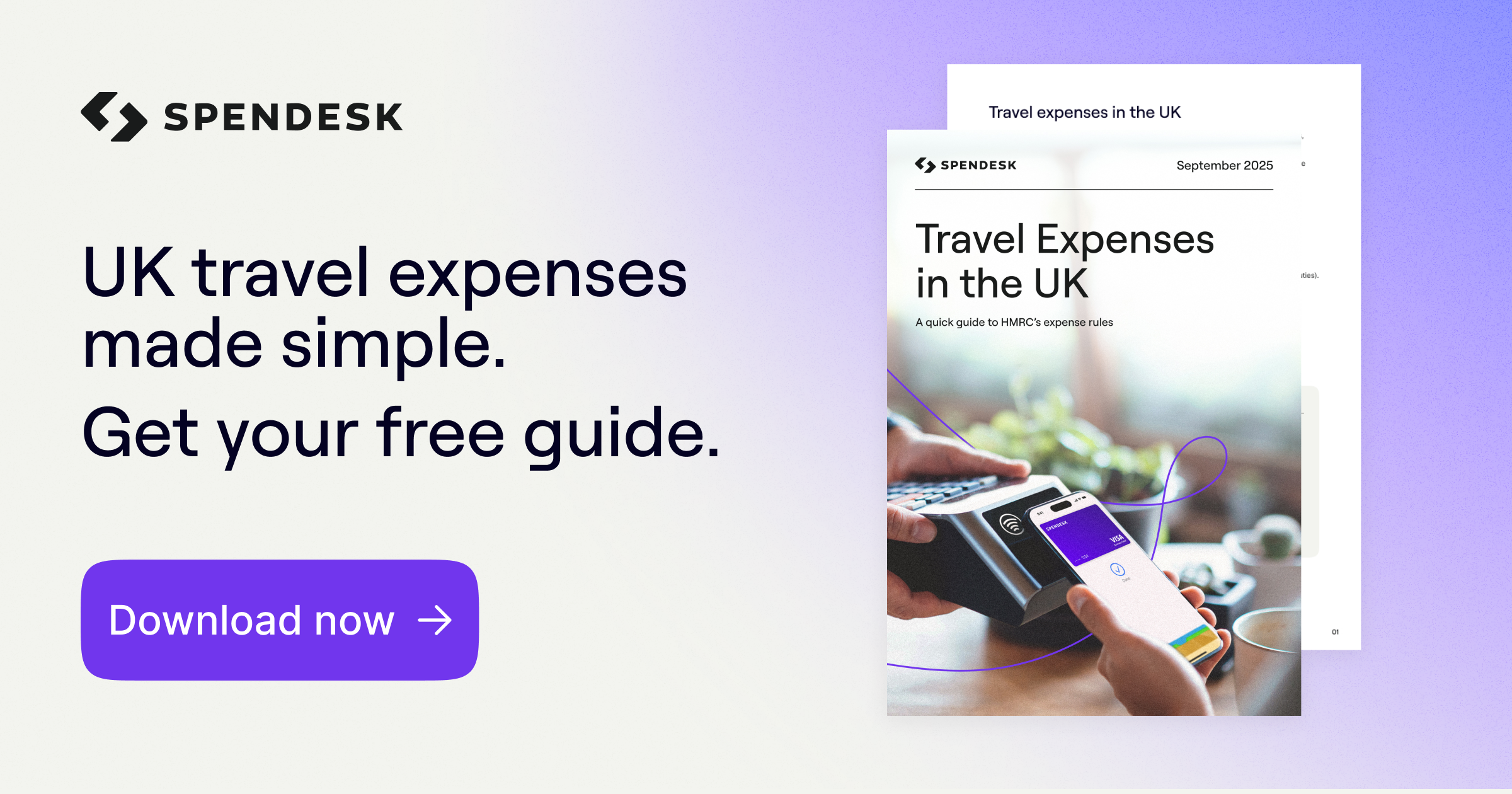
HMRC travel expenses: the basics
HMRC may provide tax relief if costs fall into the following categories :
Public transport costs
Hotel accommodation if you have to stay overnight
Food and drink
Congestion charges and tolls
Parking fees
Business phone calls and printing costs
As long as these occur during business travel, the company should be able to claim relief.
So what counts as business travel?
LeeP Financial shares this handy reference guide for company managers and employees:
Part of what makes all this tricky is the overlap between private and business travel . It’s not always clear exactly what counts as each.
Private vs business travel

The distinction between these two forms of travel is a common cause of confusion. It’s simply not always clear cut whether a trip is entirely for personal or business reasons .
There can easily be portions of a business trip that look like personal travel, and vice versa.
According to HMRC, only two types of travel qualify as “business” trips:
Journeys employees make in the performance of their duties (where travel is part of their duties)
Journeys to or from a place they have to attend in the performance of their duties (travel to a place where attendance is in the performance of the duties). This usually means visiting a temporary workplace or site outside of their regular commute.
So if travelling is your job, or if you have to visit a specific location in order to do your job, this is business travel.
Crucially, “ordinary commuting” is explicitly not counted as business travel.
Travel expenses for employers
Employers are required to report all travel expenses paid to employees during the year . There are some exceptions to this rule, especially where you’re paying HMRC’s advisory rates, or where you’ve applied for a specific exemption .
A few things to keep in mind :
Some expenses like fuel and meals have fixed rates. If you reimburse employees at higher rates, these become earnings (like salary), and are subject to PAYE and National Insurance.
If you provide extras like transport to employees for private travel , this becomes a benefit and is subject to National Insurance as well.
To be deductible, expenses need to be “wholly and exclusively incurred” for the purposes of running the business or generating more business.
But this doesn’t mean every aspect of a trip needs to be related to business. Bleisure trips are permissible, but only the business aspects of that trip can be deducted .
This should be common sense for most businesses. And as long as good records are kept and there’s a smooth process in place, you shouldn’t have much trouble managing travel .
Travel guidelines for employees
If you travel for work, incur expenses as a result, and these expenses are not reimbursed by your company, you may be able to claim tax back from the government .
To claim tax back for any kind of work expense (including travel), a few conditions must be met:
You personally pay for a necessary work cost
This cost is only necessary for work
Your employer doesn’t pay you back
Your employer doesn’t offer you a suitable alternative
And of course, you also have to pay tax, since this is a tax break.
Claiming travel expenses from home to work
We’ve seen that travel expenses can be claimed if you’re travelling to a place of work. But equally, you can’t claim if your travel counts as commuting. So what’s the core difference?
Permanent vs temporary worplaces
Commuting is the regular travel you make to a permanent workplace . Thus, if you want to claim tax back for work travel, these trips need to be to or from a temporary workplace.
In most cases, that’s going to be pretty simple. If you’re out on a sales call, going to a conference, or visiting another branch of the company, you’re not going to your permanent workplace.
Another little note : if your travel to a temporary workplace is not really any different from your regular commute (in time, distance, or costs), you can’t claim relief for this either. So if you're heading to a client just down the road, this is probably not going to count.
For more details, read the section on "the 24-month rule" below .
Common causes of confusion
Let’s look now at a few of the most common - and often most confusing - areas for mistakes.
Meals and subsistence rates
Not every single pound, dollar, or euro spent while travelling is going to be reimbursed. That would leave the door open to abuse - Michelin-starred meals and exorbitant bar tabs claimed as “business costs.”
To set clear rules and expectations, HMRC has provided a list of meal allowance rates for different cities and countries . These work like a per diem , standardised for all UK businesses. And they also include the cost of accommodation.
When reimbursing employees for meals, companies have a few options:
Use the set amounts allowed by HMRC
Negotiate another rate with HMRC, if the rates provided don’t meet the company’s needs
Reimburse employees in full, no matter the cost
Note : If your business opts for the third choice, the amount reimbursed will only be tax-free up to amount allowed by HMRC . So you can reimburse at a higher rate if you choose, but you’ll have to pay tax on the difference.
Read our full article on meal allowance rates here.
Alongside meals, HMRC has also standardised the amount companies can reimburse employees for fuel tax-free . This reflects the fact that every car has a different expectation of efficiency, and that fuel prices fluctuate.
Instead of trying to deal with this on a case-by-case basis, HMRC has assigned advisory fuel rates for company travel. These apply in two cases:
When reimbursing employees for work travel done in company cars
When employees need to repay the company for private travel in a work car
In either instance, advisory fuel rates tell companies and employees exactly how much they should expect to pay or receive per mile.
Read our full explanation of advisory fuel rates here.
The 24-month rule
We already wrote a detailed explanation of HMRC’s 24-month rule . It’s a relatively simple test to help you figure out whether a workplace is temporary or permanent . If it’s permanent - as a result of meeting the 24-month rule - employees and companies cannot claim tax relief for travel expenses.
Two key conditions have to be met for the 24-month rule to apply:
The employee must have spent or be likely to spend more than 40% of their working time at a workplace, AND;
They must attend it or be likely to attend it over a period lasting more than 24 months.
So in short, if you spend more than 40% of your time in a single workplace over a 24-month period - that’s a permanent workplace .
There are always complications to these rules, so it’s worth reading that article linked above.
Employed, self-employed, both, or neither?
Naturally, there’s no one-size-fits-all rule for employee travel. Your tax rights and obligations depend on your employment status, among other things.
And - especially in the modern careers landscape - there are whole range of different circumstances that can complicate matter. These affect:
Agency staff billing out time to clients
Employees working through umbrella companies
Contractors working through a limited company for a larger company
“Personal Services Companies” (hairdressers, care workers, and labourers, among others) fall under the IR35 legislation and may have other obligations.
This isn’t the time or place to go into all of these circumstances in detail. This post from the Low Incomes Tax Reform Group does a great job of highlighting the differences.
But to clarify: in this post, we’re mainly speaking to companies and their full-time employees .
Best practices to manage travel expenses
As a bonus, here are a couple tips and best practices on handling travel expenses from around the web.
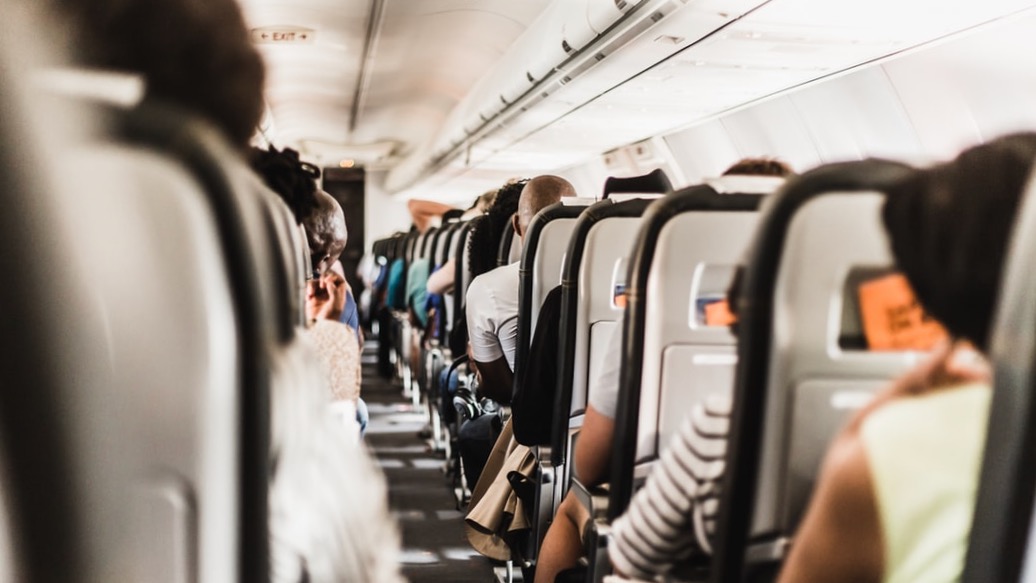
Contractor Calculator - Keep clear records
Contractor Calculator writes for contractors - obviously. But this advice is valuable whether you’re a sole practitioner or run a company of 10,000:
“Both limited company and umbrella company contractors must retain copies of receipts and tickets , and detailed mileage logs, so that they can prove the journey actually took place if investigated by HMRC.”
And of course, you’ll want those receipts if you have come up against a full on audit.
Spendesk - Automate as much as possible
Aside from misunderstood rules, the biggest issues with travel expenses normally relate to admin. Filing and processing every single expense claim by hand is a huge productivity killer.
When it comes to business travel , the more you can automate your expenses, the better.
This means looking for a good travel and spend management tool , like Spendesk. These let you automate processes, and also build in your company travel policy to keep everyone in line.
Work travel shouldn’t be a bore
For many employees, travelling for work is a great privilege. The chance to visit new cities, meet clients, and have new experiences is too good to pass up. They’re the lucky ones.
Too often, business travel gets bogged down in minutiae . The little things - expense reports and transport issues - can overshadow what should be a break from the norm. Which is a shame.
But with good planning, and better technology, corporate travel goes back to being a benefit. So find yourself a good travel management tool , get a smarter way to track expenses and store receipts, and stop sweating all of those little issues.
You can start with this clever travel planning workbook:
For more information about HMRC's rules and guidelines, take a look at these other recent articles:
HMRC VAT returns: an introduction for UK businesses
UK per diem: How HMRC meal allowance rates work
HMRC mileage allowance: How to manage employee car travel
Expense receipts: What is a valid proof of purchase?
e-Receipts: How to store digital receipts for your business expenses
How HMRC advisory fuel rates work for UK businesses
HMRC Employment Allowance: the rules & how to claim
How HMRC research & development (R&D) tax credits work
More reads on Business travel spend
)
UK per diem: how HMRC meal allowance rates work
)
How to calculate Germany’s per diem rates in 2023 / 2024
)
How modern CFOs easily optimize travel spending
Get started with spendesk.
Close the books 4x faster , collect over 95% of receipts on time , and get 100% visibility over company spending.
NEW Get engaging, efficient and insightful Surveys - find out more
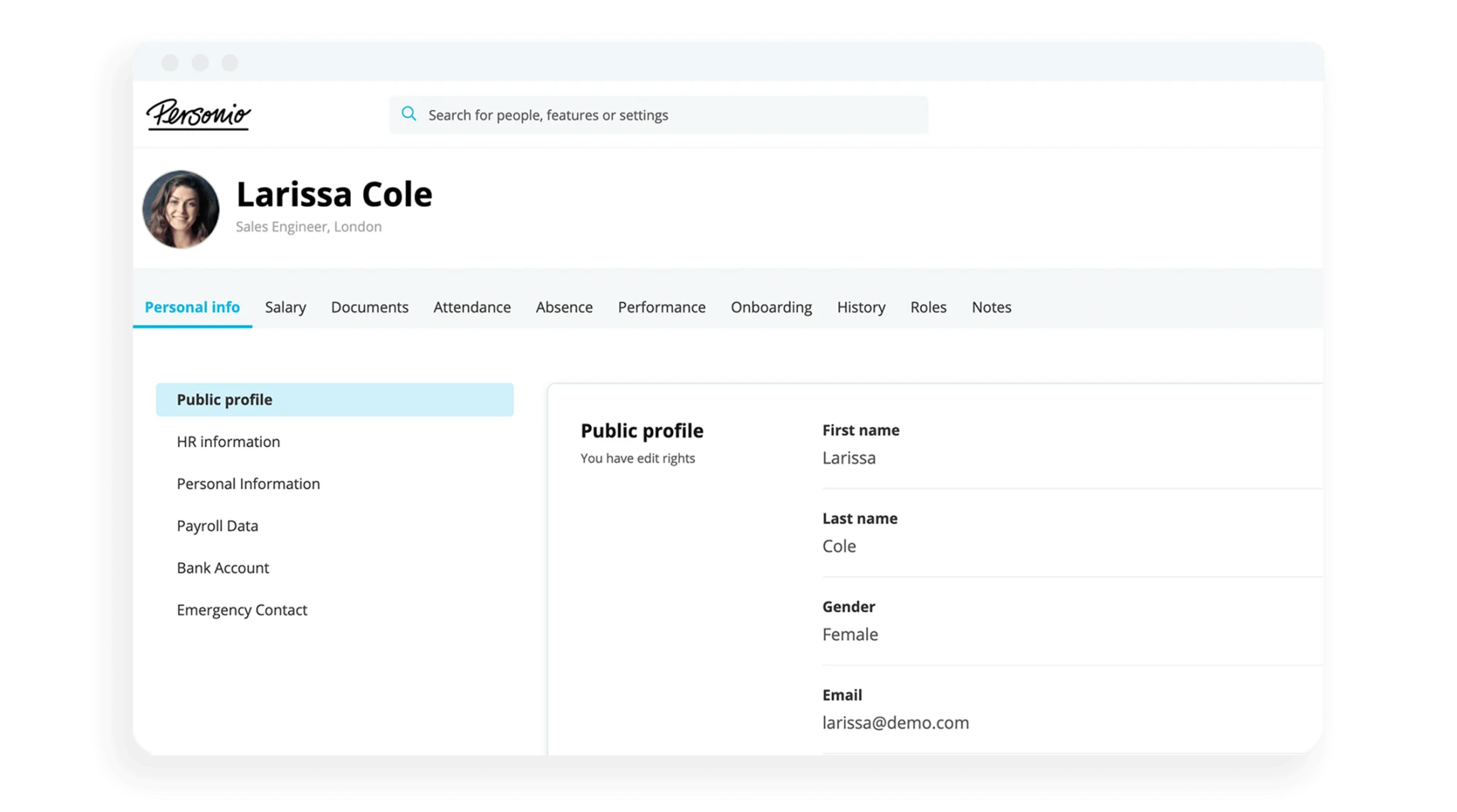
Say Hello To The Future of Filing
Organise your employee data.
Latest blog posts, travel expenses in 2024: a guide to claims and definitions.

We all acknowledge that handling travel expenses can be a headache. However, the process isn't as complex as it initially appears. This guide demystifies travel expenses for UK employers.
- 1 What are travel expenses?
- 2 What are the requirements for travel expense claims?
- 3 One source for all your employee information
What are travel expenses?
Travel expenses cover the costs an employee is likely to incur during business travel. These can include travel fares (be it car, train, or plane), accommodation, additional meal costs and other miscellaneous expenses.
Who is responsible for covering travel expenses?
As the employer, organisations are responsible for reimbursing your employees for business travel expenses. These expenses are tax-deductible for the company.
In instances where the business activity is closer to an employee’s home than their regular office, the employee might be eligible to claim these costs as income-related expenses against their own taxes.
Remember, however, that in the UK, specific rules and criteria apply. It's crucial to retain all relevant receipts and logs.
What are the requirements for travel expense claims?
In the UK, there aren't formal requirements concerning the format of a travel expense claim. However, having a standardised form facilitates the verification process and minimises errors.
For companies where business travel is frequent, automated expense tracking systems can streamline the process. In smaller operations, a well-designed Excel template suffices.
When is a travel expense report necessary?
A travel expense report is essential when an employee travels on company business. However, not all travel is classified as 'business travel.'
For instance, an employee visiting a client within the same city isn’t necessarily on a 'business trip' and may not be eligible for all travel reimbursements.

Common reasons for business travel:
Meetings with clients outside the local area
Engaging with external business partners
Visiting other branches of the company
Attending trade shows, courses, or conferences
Which costs are reimbursable?
To reimburse your employees, you'll need invoices, receipts or other valid proof of expense. These can include:
Transport costs: car, train, plane, including public transport, tolls, and parking fees
Accommodation costs
Meal allowances
Incidental costs: phone and internet
Other business-related expenses
Reimbursement procedures for different travel modes
When employees travel by car, a standard mileage rate can simplify reimbursements. In the UK, the mileage rate tends to fluctuate, so ensure you're up to date. Alternatively, a detailed logbook can be used to calculate actual expenses.
Accommodation and meal expenses
For overnight stays, you generally cover the costs within a pre-agreed budget. Keep in mind, meal expenses are often capped or may require valid proof for reimbursement.
Overseas travel expenses
For international travel, meal and accommodation allowances vary based on the destination. Always consult the HMRC guidelines or specific country allowances when planning international business trips.
Don't forget incidental costs
Additional costs such as parking, business-related calls, or currency exchange losses should also be considered. Always require your employees to provide receipts.
One source for all your employee information
And there you have it. Managing travel expenses need not be a convoluted process. With a consistent system and clear understanding of UK regulations, you can streamline the process for both the company and your employees.
With Personio, you can rely on an all-in-one HR software solution to help centralise all of your important employee data. Ditch the spreadsheets and emails, and go with a system that houses data in a compliant fashion. Speak with one of our experts today.
We would like to inform you that the contents of our website (including any legal contributions) are for non-binding informational purposes only and does not in any way constitute legal advice. The content of this information cannot and is not intended to replace individual and binding legal advice from e.g. a lawyer that addresses your specific situation. In this respect, all information provided is without guarantee of correctness, completeness and up-to-dateness. Die Inhalte unserer Internetseite – vor allem die Rechtsbeiträge – werden mit größter Sorgfalt recherchiert. Dennoch kann der Anbieter keine Haftung für die Richtigkeit, Vollständigkeit und Aktualität der bereitgestellten Informationen übernehmen. Die Informationen sind insbesondere auch allgemeiner Art und stellen keine Rechtsberatung im Einzelfall dar. Zur Lösung von konkreten Rechtsfällen konsultieren Sie bitte unbedingt einen Rechtsanwalt.
Keep Vital Data At Your Fingertips
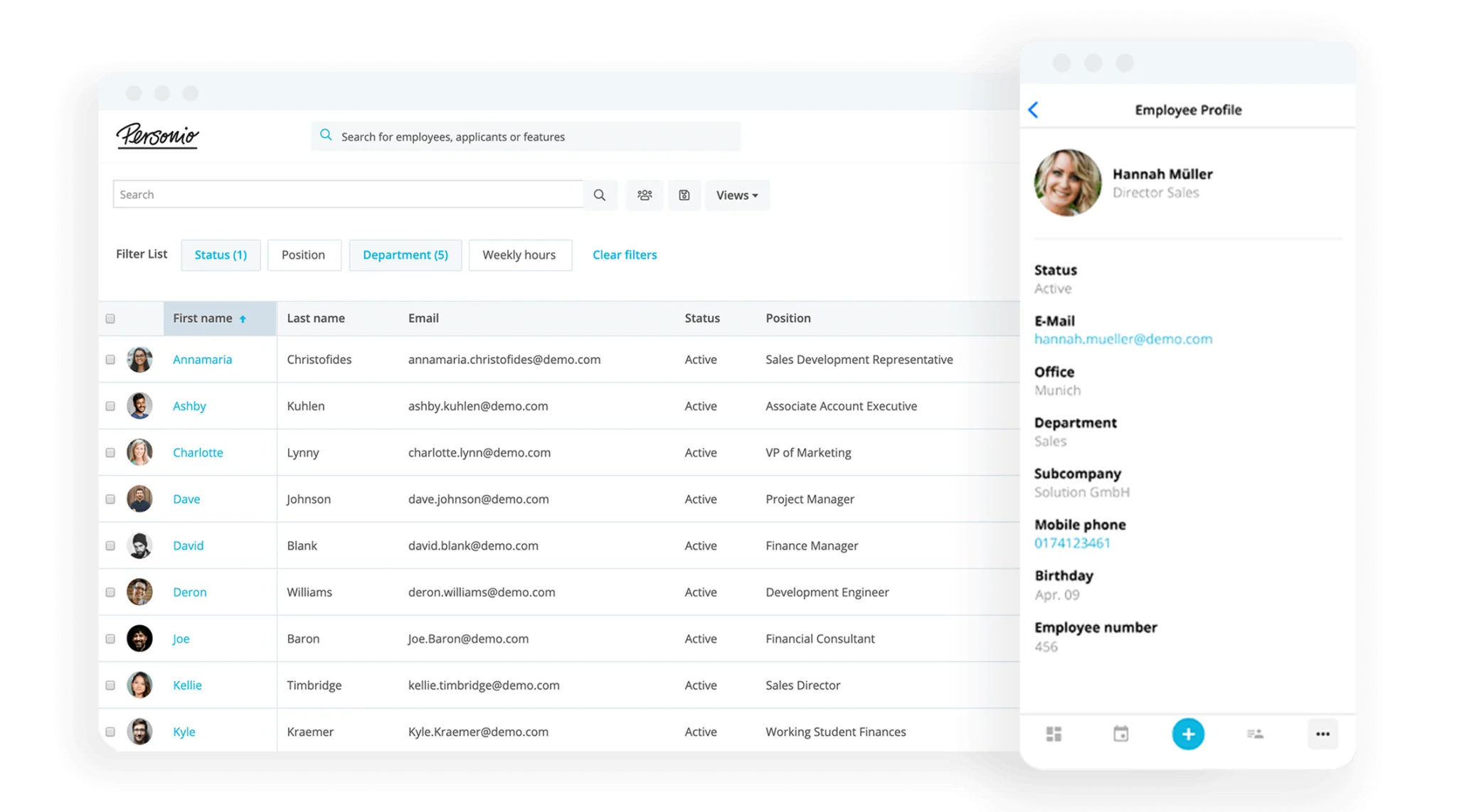
Existing Clients
Opening times, foreign business travel: expenses and allowances explained.

We’re living in a global economy, and if you want to grow your business fast, foreign clients can be a great source of income, as well as a great excuse to see the world. With the increase in people becoming self-employed and online work becoming the norm, there’s never been greater potential to source work from overseas .
Sometimes a big business deal needs a personal touch, and that usually means hopping on a plane to shake some hands in foreign lands. Most business owners will have their domestic business travel sussed – save your taxi receipts, claim your business miles etc. – but international business travel has a few quirks you need to know about.
The same rules apply
HMRC’s house rules for claiming business expenses – that they must be “wholly and exclusively” for business purposes – apply wherever you are in the world.
The requirement to keep proof of purchase is also a worldwide one, so be sure to look up “Can I have a receipt, please?” in your phrase book before hopping in that taxi in Shanghai.
Foreign travel will provide a great opportunity to let your hair down and enjoy a few sangrias by the pool – but the taxman never takes holidays, and if anything, HMRC’s eligibility requirements for allowable expenses abroad are even more strict than at home.
Don’t mix business with leisure
HMRC’s concept of “duality” means any whiff of personal benefit will render foreign travel inadmissible as a business expense.
Want to delay your flight home by a few days so you can take in the historic gothic architecture of Bremen after the 7th International Offshore Wind Power Substations Conference ? Nein! (No) that would mean you can’t claim it back.
Want to bring your spouse along to Stockholm so they can enjoy the hotel gym while you go to Wikimania ? No longer an allowable expense, kompis (for the non-Swedish speaker that means buddy in Swedish!).
It’s not impossible to enjoy a bit of leisure time when travelling overseas for business, but HMRC’s rules are strict and there has to be a clear divider when you close your laptop and open up your Lonely Planet.
Our hapless turbine engineer travelling to Bremen could book outward and return tickets separately, and the conference accommodation and the leisure days as two distinct bookings. They’d then claim for the outward flight and the conference accommodation, and pay for the rest out of their own pocket. Sehr einfach (very easy)!
The enthusiastic Wikipedian travelling to Sweden? Book the spouse’s travel separately, put them up in a different hotel and they’re bra (good!).
A tremendous hassle, but those are HMRC’s rules. Generally speaking, if an invoice , bill or receipt has spending for personal benefit on it, you can’t claim it back.
Spending money
Once you’ve actually arrived at your destination, HMRC’s rules on what you can claim are a little more straightforward.
You can treat foreign expenses exactly as you’d treat domestic spending – just keep the receipt and claim the whole amount back.
If you lose your receipts or want to keep things simple, the taxman has a handy (if huge) list of subsistence rates for every country on Earth , including major cities. It’s important to note these rates aren’t allowances – you can only claim the amounts prescribed by HMRC if you actually incur expenses up to that amount.
If you travel regularly, you’re probably used to juggling exchange rates, and they can make claiming expenses tricky. A €30 taxi ride could cost £20 when you take it, £21 when it comes out of your bank account, and £22 when you come to claim the expense in your accounting software. If in doubt, always use the amount that left your bank account – it’ll make your bookkeeping that much simpler.
It’s almost impossible to go on holiday and not return with a bag full of tourist tat. If you plan to purchase something a little more substantial than a fridge magnet, you can take advantage of lower prices abroad to purchase assets for your business – as long as you pay the correct taxes.
Many countries will allow foreign visitors to reclaim sales tax, either when they leave the country or when they buy (many large malls will have tax reclaim counters). If you purchase a business asset – for example a camera, laptop or some other sizeable piece of equipment – you can reclaim the sales tax. You’ll need to declare the asset when you return to the UK and pay any applicable VAT , but if you’re Standard VAT registered you can reclaim that on your next return.
You’ll save your business a tidy sum, and your new purchase will probably prove much more useful than a bottle of Absolut Vodka and a Dala horse .
If you’re looking for more information on what expenses you can claim then our articles “What expenses can I claim as a limited company?” or “What expenses can I claim as a sole trader?” should be just what you need. Alternatively, for freelancers who prefer their home comforts, we've got a guide on working from home tax relief too.
Speak to an accounting expert
Related knowledge, more from our knowledge.

3 Incredibly Inspiring British Female Entrepreneur Success Stories

A Complete Guide to Capital Gains Allowance in the UK

How is crypto trading taxed?
Knowledge hubs.

Demystifying tax for businesses and individuals alike. Stay informed about tax regulations, discover effective tax-saving strategies, and ensure compliance with our comprehensive tax guides and tips.

Starting a Small Business
Launching your own venture? Navigate the startup journey with confidence using our detailed guide. Learn the essentials of starting a small business and set yourself up for success. Powered by Crunch.

Running a Small Business
Navigate the complexities of entrepreneurship with ease. Discover essential tips, strategies, and resources tailored for successfully running a small business in today's competitive landscape.
Hub Categories
Business tax, contracting, contractor tax, cryptocurrency tax, freelancing, hr & operations, insurance & risk, legal matters, limited companies, managing finances, marketing & growth, personal tax, self assessment, software as a service (saas), sole traders, tax reliefs, take control of your accounts, today.
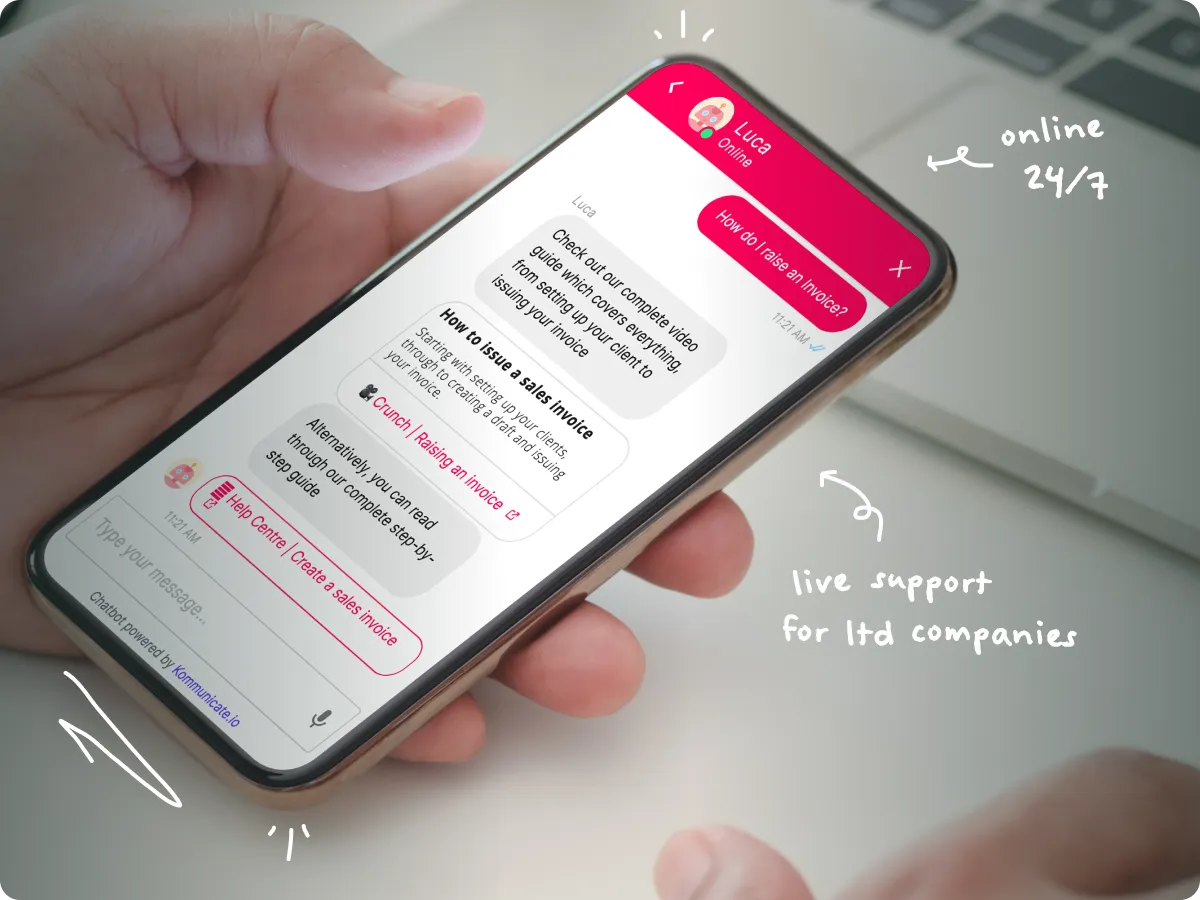
Professional Bio Templates & Examples
Award-winning software with support from expert accountants
Just 1%+VAT of your money earned. No monthly subscriptions! With CrunchONE
Get your tax return sorted by experts for only £100+VAT!
At Crunch we provide affordable cutting-edge, easy-to-use software with real human support from expert chartered accountants. That’s probably why 81% of our clients would recommend Crunch.
Book a call with our one accountants and get your questions answered. Just £24.50 +VAT for Crunch Free users.
Crunch’s Self Assessment service provides an expert accountant to complete, check, and file your Self Assessment for you for just £100 +VAT.
Why not see for yourself? It’s simple and easy to use and 100% free .
- English (CA)
- Deutsch (DE)
- Deutsch (CH)
Managing business travel expenses
Best practices for travel expense management, what exactly are business travel expenses, need to get better control of your business travel spend, what business travel expenses can employees claim.
- The actual costs of the travel (the flight, train ticket, hotel cost, etc)
- The subsistence expenditure (your food and drink consumed during the time you travel)
- Any other costs that came about because you made the journey such as entertainment.
What is not a legitimate travel expense
- Commuting to and from your usual office
- Any travel taken for private reasons.
How to manage the travel & expense process
1. decide on the employee payment method.
- Ask employees to pay them upfront using personal card/bank account/cash and then have them submit expense claims.
- Pay expenses directly from a company bank account or company card.
1. The company credit/spending card
2. pay with personal cards and submit expense claims, 2. set out a clear process for expense submission & reimbursement.
- Pre-trip expense projection - ask employees to complete a projection prior to their trip, this will force them to consider their spend.
- Receipt and invoice types - Be sure to state in what format you expect evidence to be provided (e.g. tax invoice in PDF/ physical receipt)
- Expense claim submission timeline - Ensure that expense claims are all made within 5 working days of the business trip finishing.
- Expense reimbursement period - The company commits to reimburse staff within 15- 30 days of the expense claim, during which period the company can query expenses.
3. Communicate the expense policy
- Company-wide emails every quarter - Send an email with the policy every quarter, this may not be necessary if you are a small team.
- Talk about it at all-hands meetings - Your job is important and saves the company money , and people need to know the rules. At the next meeting ask to speak for a few minutes giving examples (not naming names) of good and bad expense claims
- Post it on your company intranet - Make sure it is a live document and easily accessible. Link it to a Google doc or whatever tool you use, this means updates don’t require you to ask employees to delete or disregard previous versions,
How to calculate and track business travel expenses like a pro
1. record everything and tag each expense.
- By trip type (existing client, sales, corporate event)
- By department
- By expense type
2. Calculate every trip
- Travel cost - plane, train, car hire, this includes the petrol you put in the car
- Accommodation - Hotel, Airbnb, or wherever you stayed
- Food & drink
- Entertainment - either for clients or if permitted in policy
- Wi-Fi connections , or anything else you needed to get your business done on the road.
3. Categorize your spend
Project your travel expenses, need more tips on managing business travel, how to reduce travel expenses for small businesses, 1. do you have to stay the night, 2. get the point(s), 3. cut the taxis, 4. get corporate rates, 5. get the per diem right, 6. recover the tax, travelperk makes calculating your recoverable vat simple, 7. get cashback.
?)
Make business travel simpler. Forever.
- See our platform in action . Trusted by thousands of companies worldwide, TravelPerk makes business travel simpler to manage with more flexibility, full control of spending with easy reporting, and options to offset your carbon footprint.
- Find hundreds of resources on all things business travel, from tips on traveling more sustainably, to advice on setting up a business travel policy, and managing your expenses. Our latest e-books and blog posts have you covered.
- Never miss another update. Stay in touch with us on social for the latest product releases, upcoming events, and articles fresh off the press.
- Business Travel Management
- Offset Carbon Footprint
- Flexible travel
- Travelperk Sustainability Policy
- Corporate Travel Resources
- Corporate Travel Glossary
- For Travel Managers
- For Finance Teams
- For Travelers
- Thoughts from TravelPerk
- Careers Hiring
- User Reviews
- Integrations
- Privacy Center
- Help Center
- Privacy Policy
- Cookies Policy
- Modern Slavery Act | Statement
- Supplier Code of Conduct
Related articles

Home | Business Expenses | HMRC travel expenses
How to manage your travel expenses with HMRC
Learn about the rules HMRC set for travel expenses and see how Soldo can help you keep track of your travel expenses

HMRC travel expenses
As a business owner you will likely need to travel to grow your company, and travelling is never free. These business expenses , whether it’s rail fare, bus fare, or fuel costs , can add up. These charges can be significant, too, especially if your business is small and you need to keep costs down. Thankfully, there are ways to claim on these expenses and save quite a bit of money. If an expense qualifies as a business expense, you don’t have to deduct or pay tax and National Insurance on it, but to ensure this, you need to ensure that any expense meets the criteria set by HMRC. It’s quite a complex topic. Read on to find out how HMRC manage travel expenses and how Soldo can simplify the way you manage these costs.
Domestic travel
The most frequent journey you’ll take is of course the one from your home to your place of work. Unfortunately, this daily travel is classed as ‘ordinary commuting’ by HMRC, and it is not eligible for tax relief. This changes, however, if you have to take a business journey somewhere that isn’t your permanent workplace.
Travel expenses are allowable for tax purposes if you have to travel to somewhere outside of your usual workplace to what’s known as a ‘temporary workplace’. A temporary workplace is somewhere you’ll be travelling to for a limited period of time or somewhere you travel to infrequently.
A workplace only counts as temporary if you’ll be working there for less than two years. If you’re there for a period longer than 24 months, it will be classed as a permanent workplace, and you won’t be able to claim expenses on it. This is what’s known as the 24 month rule.
There is a caveat, however, in that this is only the case if you’re performing a substantial amount of duties at this location which, according to HMRC, is 40% or more of your workload. If it’s less than this, you may be able to claim it back.
HMRC also has an Approved Mileage Allowance Payment rate, or AMAP, and you can claim certain amounts depending on how much you travel. This travel of course has to be strictly business related.
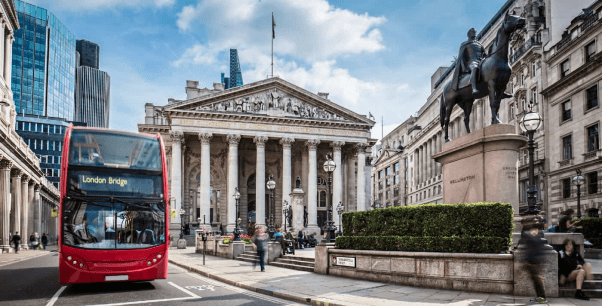
6 strategies to fuel growth in 2024
In this short summary, finance and business experts share 6 Growth Strategies from the 2024 Spring Budget to help your business grow.
Other travel expenses
If you’re travelling for a long period, you’ll naturally incur other expenses that aren’t just related to the travel itself. HMRC allows you to claim business expenses under the term “subsistence allowance”, also known as a per diem or meal allowance; basically, everyday expenses you accrue in the process of running your business.
Although it’s known as a meal allowance, the allowance can stretch beyond food to fees such as business phone calls, congestion charges, and overnight accommodation. This is significant because if they’re designated as a business cost, they don’t need to be taxed, so your business saves money.
Manage travel expenses with Soldo
As you can see, there’s a lot to consider when thinking about travel expenses, and it’ll be worth your while to take a look at the HMRC website for details on how your business’ specific needs can be met by the criteria. But whatever expenses you’re able to claim, Soldo’s system of business expense cards can help to streamline your finances and make the process of your expense management much easier.
With Soldo you can set up any number of prepaid cards for individuals, teams, or sites. You then set the budgets for these cards and track how these budgets are being spent on the Soldo app, either on mobile or desktop.
For example, you may want to set up a scale rate payment for your employees. A scale rate payment is a certain budget you allow your employees to spend on subsistence charges, such as meals and travel. You will have to be certain, however, that employees are spending this allowance on necessary business transactions. This has the potential to become a headache for finance teams, as they may have to check through receipts to ensure the expenses are correct.
Soldo cuts time spent on expense claims in half.
Read the Forrester study to learn how.
Read more articles about business expenses
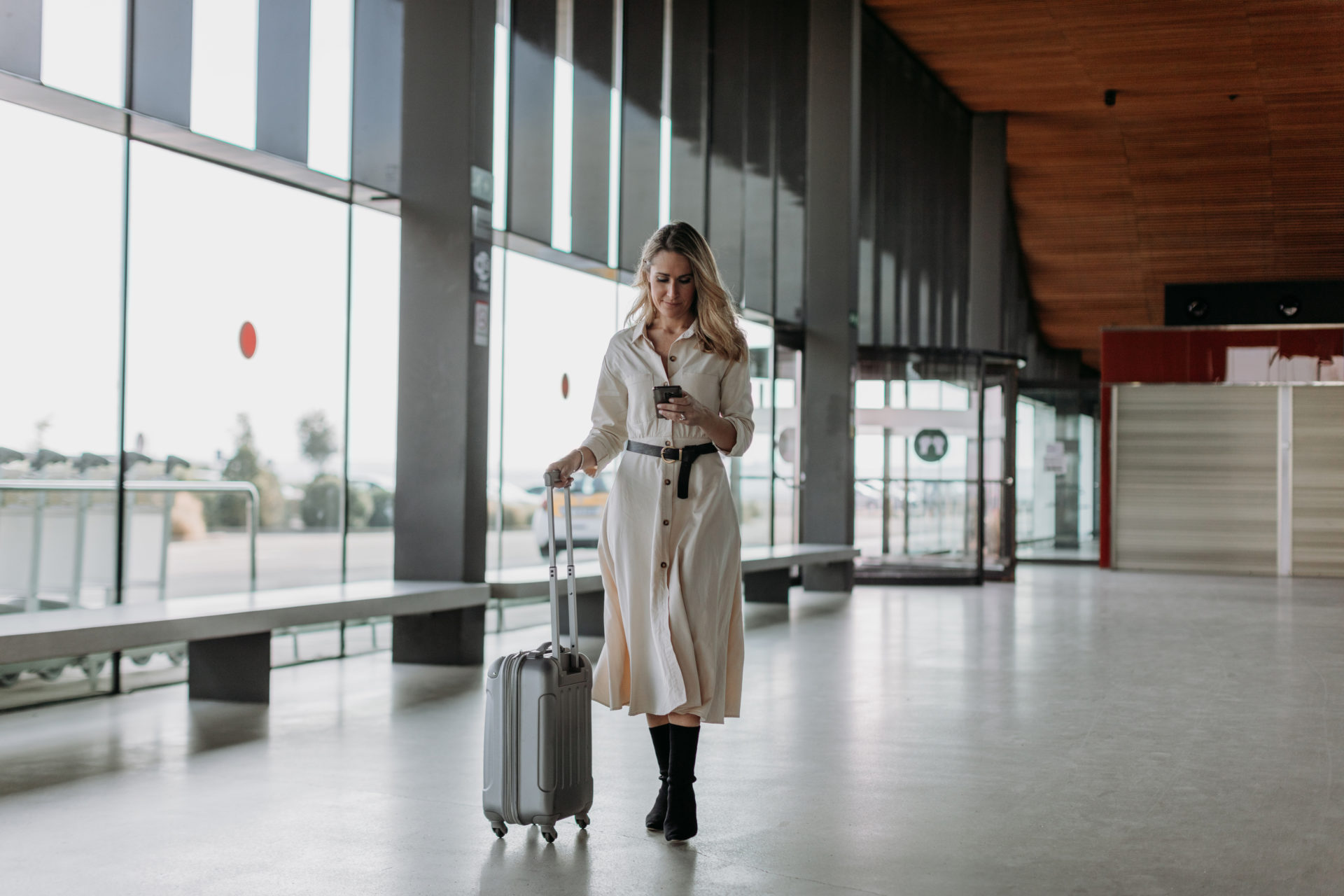
Business Travel Expenses
No more paying out of pocket and managing reimbursements for business trips. Save hours of expense...
Read more →
Fuel Expenses
No more credit cards, reimbursements, or inflexible cards. Get driving without hours of...

Charity Travel Expenses
It’s important to manage charity travel expenses so volunteers aren't out of pocket. Here Soldo explains how to make the process painless, keeping the lid on...
Frequently asked questions
Yes, you can claim for various expenses, ranging from train fare to business phone calls, but you’ll need to be sure these expenses are verifiably for exclusively business purposes. This is where Soldo comes in. Soldo’s smart prepaid system allows you to designate individuals with a certain budget, and then track that budget in real-time, straight from the app.
The 24 month rule refers to the difference between a temporary and permanent workplace. You are unable to claim expenses on any travel to and from a permanent workplace, but you can claim on travel to a temporary workplace. A workplace only counts as temporary if you’ll be working there for less than 24 months. With Soldo, these complexities of finance are made easier by our smart prepaid system and intuitive app which will automatically generate expense reports for you.
With Soldo you can assign prepaid cards to your employees and set budgets so you know exactly how much they’re spending. With travel expenses, it’s important to keep track of what exactly is being bought so that you can claim on them effectively, and Soldo makes this simple. See what your employees are spending as they spend it, and have that data integrated directly with accounting software such as QuickBooks Online and Xero.
Manage business expenses with Soldo
Soldo helps you simplify the management of business expenses by making administrative processes faster and more transparent.

UKRI business expense claims, business travel and subsistence policy
Policy statement.
This policy covers business travel, associated subsistence rates and general expense claims. It sets out the importance of employee safety and security when travelling in the course of UKRI business and the methodology for how employees should consider their travel needs. The policy confirms that contracted procurement channels (the UKRI travel providers and arranged contracts in place for other items and services) should be used in the first instance and the UKRI Guidance on When and How to Travel outlines the exceptional circumstances when it is appropriate to use an alternative method.
UKRI is funded by the taxpayer and therefore employees should consider the value in money spent and reflect on whether this is an appropriate use of public money and only claim where this is appropriate to do so. Employees should be aware that from time to time UKRI may be required to disclose information on travel bookings, subsistence costs and expense claims.
All those travelling on UKRI business are firstly expected to consider whether the trip is necessary and if so, travel arrangements should consider the 4 key travel factors:
- health and safety, wellbeing and security
- environmental impact
- cost as a public funded organisation
- business needs
UKRI remains committed to the safety and security of its employees. Employees should consult UKRI’s Travel Risk Management Provider – International SOS – for any travel outside of the UK. Employees will not be required to travel to high risk locations against official advice or if they have wider concerns or considerations.
This, and all HR policies, must be read and implemented in conjunction with the associated guidance documents (Guidance on When and How to Travel and Guidance on Travel Standards, Subsistence and General Expenses), in addition to other UKRI policies that may be relevant. This document is available in alternative formats for accessibility purposes – please contact [email protected].
Management statement
The travel, subsistence and expenses policy has been agreed with the UKRI Trade Union Side. It complies with both statutory legislation and HM Revenue and Customs requirements. For the purposes of this policy the use of the word ’employee’ covers all UKRI employees, including those employed on temporary or fixed term contracts.
It is expected that where UKRI is paying for travel, subsistence and expenses for non-employees the same policy principles and guidance should be applied. For advice on the application of the policy or the associated documents contact the HR Operations team or local HR team in Innovate UK, centres, institutes and units.
This policy is owned by the HR Policy Team and the content has been developed in conjunction with the UKRI Environmental Sustainability Team, UKRI Finance and UKRI Procurement, UKRI Security and UKRI Health & Safety. An equality impact assessment has been completed to ensure that this policy and associated guidance documents do not discriminate against anyone and that they promote where possible equality of opportunity.
1. Approval and review
1.1 This policy is owned by the UKRI HR Policy Team and content is provided across UKRI teams where appropriate including Environmental Sustainability, Finance, Procurement, Security and Health and Safety.
1.2 This policy is formally approved by the UKRI Joint Negotiating and Consultative Committee.
1.3 This Policy (including the rates detailed in Annex B) will be regularly reviewed to incorporate legislative change but otherwise at minimum of 2 years or at the request of the Trade Union Side.
1.4 The next scheduled review is September 2024.
2. Reporting and management requirements
2.1 Council Chief Operating Officers and members of the UKRI People, Finance and Operations committee will be provided with travel booking information (quarterly from the procurement team) and emissions data (quarterly from the Environmental Sustainability Team) to monitor the impact of the policy.
2.2 UKRI Environmental Sustainability Delivery Group will review business travel emissions data against targets and is responsible for reporting against Greening Government Commitment targets to BEIS on a quarterly basis.
2.3 As noted above, UKRI may be required to report externally on travel bookings and expenses.
3.1 This policy will allow employees to claim reimbursement of reasonable expenses necessarily incurred when travelling on UKRI business and sets the expectations for such claims. It will also provide information on general employee expenses for items which are unable to be procured through the UKRI procurement processes.
4.1 This policy applies to anyone travelling or claiming reimbursement of expenses incurred as part of UKRI business – this includes all travel associated with our work including for research, engagement, recruitment and operations. UKRI employees should consult the HR Policy Framework. Non-employees who claim travel, subsistence and expenses through UKRI are expected to follow this policy, including consideration for the travel hierarchy, but have a separate claims system in place. For more information on this please discuss with your UKRI contact.
4.2 Business travel is defined as all travel incurred in the course of carrying out your role at UKRI. Normal commuting such as travel between home and your contractual site is excluded from the policy, however, there may be instances where this can be claimed such as on-call claims.
5. Principles
5.1 Employees should neither profit nor suffer a financial loss while undertaking UKRI business.
5.2 Employees should ensure that prior to arranging travel they consider whether the same outcome could be met through virtual attendance (such as dialling in remotely via tele- or video-conferencing).
5.3 When travel is required to meet business needs, employees should consider 4 key travel factors before booking travel:
- Health and safety, wellbeing and security
- Environmental impact, supported by the travel hierarchy
- Business need
5.4 Reasonable (sensible and proportionate) travel and subsistence costs necessarily incurred will be reimbursed by UKRI – wherever possible receipts should be provided.
5.5 The typical rates applicable in the UK are included in Annex B, or, in the case of expenses when travelling outside of the UK, this is within the maximum limits set by the HMRC’s scale rate expenses payments.
5.6 Employees with additional requirements, for example where there is a disability, wellbeing, safety or security consideration, should request and agree reasonable adjustments with their line manager where necessary to ensure they feel safe and able to perform their duties.
5.7 Claims made outside of the policy and guidance may be investigated.UKRI may not pay such claims and where fraudulent activity is demonstrated the employee may be subject to disciplinary proceedings.
5.8 Employees should follow the latest UKRI procurement Policy and processes when:
- Arranging travel – employees should book through the UKRI Travel Providers
- Procuring items or services – should be procured through the relevant procurement system such as the Science Warehouse or dedicated contract.
5.9 If the supplier/contract is unable to meet the business need approval should be sought to purchase the item through the General Procurement Card (GPC) or employee expenses. In emergency situations this is not required.
5.10 Purchases of gifts for colleagues as part of occasions, including but not limited to retirement, leaving, sickness or parenthood, is specifically exempt. These should be funded through collections/donations with other colleagues. For further information on Gifts and Hospitality such as items required for cultural reasons please refer to the Gifts and Hospitality Policy.
5.11 UKRI is prepared to consider a claim for compensation from an employee who has suffered damage to, or loss, of their personal property, provided the damage or loss occurs on UKRI premises or while on official duty.
5.12 Local council or site policies and expenses rates are not permitted, however, there may be additional guidance available locally to support the operational implementation of the policy, such as local travel approval and booking arrangements (travel bookers).
6. Responsibilities
6.1 Employees are responsible for:
- considering whether travel is necessary
- making sensible, reasonable decisions before and during travel and ensuring their personal safety and security. Concerns should be raised to their line manager/health & safety/security at any point. Personal safety and security of employees remains the key factor in all decision making
- claiming non travel related expense appropriately and in line with procurement policy
- understanding the policy and asking for support when necessary
6.2 Line managers are responsible for:
- discussing and agreeing travel arrangements (including alternatives to travel) with employees in line with local operation procedures referencing the 4 key travel factors
- reviewing the detail of expense claims including checking the receipts provided to ensure they are accurate to the amount claimed and ensuring the costs have been appropriately incurred on UKRI business
- challenging claims where appropriate and approving in a timely manner
- line managers cannot approve claims which include expenses they have personally benefited from (for example, if they were present and part of the employee’s claim for a meal)
- seeking further guidance from their own line manager or HR if they are unsure as to the application of this policy and associated guidance
7. Travel booking and approvals
7.1 Before booking any travel, employees and line managers are expected to consider whether an equivalent outcome could be delivered virtually. This could mean attending meetings remotely via video or tele conferencing options or opting to attend webinars and virtual events.
7.2 Normally, travel for UKRI business must be approved by the line manager prior to being booked in line with local operating procedures, unless in exceptional circumstances where travel changes are required at short notice.
7.3 Employees and line managers must give consideration to each of the following factors when considering their travel plans:
7.3.1 Health and safety, wellbeing and security UKRI expects employees to make travel arrangements which prioritise their safety and security; and to take account of any reasonable adjustments they require. It may also be appropriate to make adjustments to support employee wellbeing. For travel outside of the UK employees must consult the iSOS for travel advice prior to travel, raising any concerns with the Security Hub. A risk assessment should be completed when travelling for work purposes – more information is available in the Guidance on When and How to travel on UKRI Business and through your local health and safety team.
7.3.2 Environmental impact of the travel Employees are encouraged to follow a ‘virtual first’ approach unless it can be demonstrated that there is a business need to travel. If travel is required the travel hierarchy below should be followed to consider lower carbon emitting options first:
- Virtual first and smarter meetings: considering video conference or phone as the first-choice alternative to travelling. Making the most out of meetings e.g., through efficient preparation
- Active travel: travelling by bicycle or walking
- Public transport: travelling by bus or rail etc.
- ULEV/pool vehicles: ultra low emission vehicles including hybrid pool, electric and rental vehicles. Car sharing when you can
- Private car: staff member owned vehicles
- Air: travelling by aircraft
Further information and examples are detailed in the supporting guidance.
Employees who travel by air are required to provide written justification and obtain authorisation from their senior leadership – UKRI Band H or equivalent band (delegated to Band G or equivalent where appropriate) prior to bookings being made. The approval process will vary by site/council and will likely either be by email or travel approval process. Minimum justification requirements are set within local operating procedures.
Operational flights, such as those at NERC which are required to directly undertake or support scientific activity or in the field training can be approved in bulk.
Domestic mainland UK flights are discouraged unless for operational or wellbeing reasons. Where practicable, international rail services (such as Eurostar) should be used for travel to and from European destinations.
Employees are expected to travel in standard or economy class unless there is a justification for an increased class of travel to account for health and wellbeing needs. If employees are required to use a higher class of travel this should be done at the minimum level required to meet their needs for the trip – meaning premium economy should be considered before business class.
7.3.3 Cost Cost of the travel options is 1 factor but is not considered the primary factor when making travel decisions. Employees are encouraged to ensure that they look at budget options where available through the UKRI approved travel providers and book travel in advance where possible to get best value for money.
7.3.4 Business Needs Needs such as the need to attend meetings which may fall outside of working hours, meetings for urgent or sensitive matters and door to door travel time considerations.
7.4 The weighting of these factors will vary by employee and on each trip made. Employees and line managers should consult the case studies provided in the supporting guidance and the frequently asked questions for examples of considerations to help further inform and support their decision making.
8. Submitting expense claims
8.1 UKRI employees should submit expenses claims on the system with the relevant supporting documentation within 60 days of the date incurred and have them approved prior to their last date of employment.
8.2 Line managers should review expense claims in a timely manner and discuss concerns with employees prior to approval.
9. Travel and subsistence claims
9.1 Employees may claim for reasonable incidental costs incurred in the course of UKRI business. Examples include non-alcoholic drinks such as tea and coffee when not taken alongside a meal, or for paying for toilet use in stations. Employees should claim for actual spend on a receipted basis where possible, however, it is recognised that sometimes this may not be possible (for example, when using a vending machine or station toilet). Items less than £5 may be authorised without a receipt in these instances provided these are considered reasonable. UKRI will not normally pay for alcohol costs unless as with prior authorisation and as part of an external event.
9.2 In exceptional circumstances, employees who are going on an extended visit can request an advance payment of anticipated travel and subsistence costs.
9.3 Employees travelling outside of the UK should discuss and agree with their line manager how they will claim for subsistence costs – whether this will either be on a receipted actuals basis or if more appropriate, to claim the standard HMRC daily rate for subsistence costs.
9.4 In the exceptional circumstances where employees have been unable to book travel through the UKRI Travel Providers this should be put through the system as receipted actuals. A justification as to why it was not possible to use the travel provider should be included with the claim.
10. Non-travel expense claims
10.1 It is recognised that there may be certain items that employees are unable to order goods or services through the UKRI procurement system. Under these circumstances employees are able to claim expenses through the system when these have been agreed with the line manager in advance and on a receipted basis.
11. Detached duty
11.1 Where employees are required to work in a different location to their contractual base at the request of UKRI, reimbursement can be made for excess travel and subsistence costs for attendance at that site.
12. Information governance
12.1 As a public sector organisation UKRI may be required to publish information relating to expenses claimed. This information will normally be in an aggregate or summary level, however, where individuals may be identified from the data, UKRI will where possible give claimants the opportunity to comment prior to disclosure. This will not prevent the disclosure of factual information. Receipts and supporting documentation may be disclosed as part of the publication request.
12.2 Information including receipts and supporting documentation will be retained on the system in line with the UKRI data retention schedules.
13. Third party and external provider expenses
13.1 Travel, accommodation, subsistence and expenses may be funded or provided by another organisation. Claimants are still expected to follow the expectations set out within the UKRI policy and supporting documentation.
13.2 Employees should not accept any offer of payment, in cash or otherwise, by another organisation for expenses which have been paid, or are due to be paid, by UKRI.
Annex A: definitions
Travel providers: This refers to the contracted providers who are contracted to provide travel solutions for UKRI. This includes the central UKRI travel contract, car hire companies and the contract for provision of flights to The Antarctic.
The system: For employees within UKRI supported through UKSBS this refers to the Oracle system. Innovate UK employees should use Workday.
ULEV: Ultra low emission vehicles including electric vehicle, less than 50g CO2e/km.
Operational flight: Operational deployment international flights are defined as those required to directly undertake or support scientific activity or ‘in the field’ training. Non-operational flights include flights for conferences, meetings and non-operational training activities.
Annex B: expense rates
Cars and vans.
- Each business mile within the first 10,000 business miles in tax year: 45p
- Each business mile over 10,000 in the tax year: 25p
- Per passenger per business mile for carrying fellow employees in a car or van on journeys which are also work journeys for them: 5p
Motorcycles
Each business mile: 24p
Each business mile: 20p
Only an economy ticket is permitted unless there are additional requirements as part of a reasonable adjustment or welfare consideration.
Underground and metro fares
These services can be booked through the travel provider as part of a rail journey. When claiming for fares directly such as using a contactless card (including Oyster Card) the actual travel cost per journey will be reimbursed on a receipted basis.
Loyalty points awarded by airlines
Points accrued through official travel for UKRI: these points must be used to offset the costs of future official journeys, and not for personal use. Employees cannot specify a particular supplier to gain air miles or loyalty points.
Fees required as part of a visit outside of the UK
Fees applied for as part of official UKRI business: these will be reimbursed on production of a receipt. This includes items such as:
- vaccination costs
- testing requirements (for example, Covid testing for entry)
- currency fees
Vehicle hire
Claimants should use the UKRI’s recommended service for booking a hire car. UKRI pool cars should be utilised first and then UKRI contracts should be utilised before booking a private hire vehicle. Actual cost reimbursed on a receipted basis for a journey made as part of UKRI business.
Actual cost reimbursed on a receipted basis.
Parking, congestion charges, ferries
Actual cost reimbursed on a receipted basis for journeys which qualify for mileage allowances.
Fines or costs relating to traffic offences (for example speeding, parking, clamping, congestion charge fine etc.)
No payments will be made under any conditions.
Meals in the UK
- Breakfast meal limit (where not included in accommodation): £7.50 inc. VAT
- Lunch meal limit: £15 including VAT
- Main meal limit: £25 including VAT
Subsistence outside of meals
Reasonable costs on a receipted basis, excluding alcohol costs.
Accommodation rates in the UK
- London and Edinburgh (including breakfast): maximum £170 including VAT per night
- elsewhere in the UK (including breakfast): maximum £120 including VAT per night
- staying with friends or relatives (only available for employees, this must be paid via payroll with completion of the form on The Source and not through the expenses system): flat rate £25 net per night
Overseas expenses
Scale rate expenses payments: employee travelling outside the UK. Actuals up to the limits set in the HMRC scale rate expenses payments. This is inclusive of additional extras including tips but excludes alcohol costs.
Additional or late attendances at work
Travel between home and contractual place of work. This is the responsibility of the employee and will not normally be reimbursed.
Cancellation charges
If the employee was unable to book through the provider and unavoidably had to cancel. Actual costs when supporting information is provided. The claimant must also support the recovery of costs through the UKRI Group Travel Insurance Scheme.
Page viewed: 2:47 am on 29 April 2024
This is the website for UKRI: our seven research councils, Research England and Innovate UK. Let us know if you have feedback or would like to help improve our online products and services .
Welcome to Finextra. We use cookies to help us to deliver our services. We'll assume you're ok with this, but you may change your preferences at our Cookie Centre . Please read our Privacy Policy .
See Headlines »

News in your inbox
For Finextra's free daily newsletter, breaking news and flashes and weekly job board.
Related Companies
Lead channel.

Mastercard launches virtual card app to simplify travel and business expenses
HSBC Australia and Westpac have signed on as the first banks to offer a new Mastercard app that enables virtual commercial cards to be added to digital wallets.
Mastercard says its mobile virtual card app will simplify travel and business expenses for banks' commercial clients. “Businesses worldwide are seeking fast and secure payment experiences, where payments can be made with just a click or tap, and finance teams can experience automatic reconciliation,” says Chad Wallace, global head, commercial solutions, Mastercard. The app uses Mastercard's virtual card and tokenisation platforms, enhanced data, security, and spend controls within a single interface. John Scott, head, global payments, HSBC Australia, says: "Mobile wallet usage is growing, with the Asia-Pacific region accounting for over half of the digital payment transactions globally. "As contactless payments continue to surge, it’s important that corporate clients have access to best-in-class payment solutions to keep their business secure and take advantage of the increased efficiency offered by the latest technologies."
Sponsored: [Webinar] Cross Border Payments: Hitting G20 targets for speed, cost, and transparency
Comments: (0)
Write a blog post about this story (membership required)
![uk travel expenses [New Survey Report] Definitive Differentiators - Forging a future-proof payments model](https://www.finextra.com/finextra-images/100x30/tietoevry-2024-txt.jpg)
Central banks embark on tokenisation project
22 Apr 0 4 3

Visa launches open banking with Tink in the US
25 Apr 1 2 8

Revolut to grow headcount by 40%
24 Apr 0 2 7

/regulation
Apple offer to open up nfc payments access set for eu approval - reuters.
22 Apr 0 1 6
Temenos appoints CEO; says sales hit by Hindenburg report
See all reports ».

The Future of UK Fintech - 2015-2035
62 downloads

Definitive Differentiators - Forging a future-proof payments model
443 downloads

APP Fraud Liability: A Guide for Banks
492 downloads
Ukraine-Russia war latest: Fighting 'intensifies in eastern Ukraine as troops fall back'; UK estimates 450,000 Russian losses since war began
Gen Oleksandr Syrskyi says his troops have taken up new positions west of Berdychi, Semenivka and Novomykhailivka in order to conserve their forces while armed forces minister Leo Docherty tells the UK Defence Journal tens of thousands have deserted Russian's military since February 2022.
Sunday 28 April 2024 22:34, UK
- Fighting intensifies in eastern Ukraine as troops fall back
- UK minister estimates 450,000 Russian losses since war began
- Tajikistan citizens warned not to travel to Russia
- 'Well-provisioned' Ukrainian troops could prevent Russian advances
- Russia destroys 17 drones launched by Ukraine
- Explained : Why is Chasiv Yar the next target for Russia?
- Your questions answered: Will Ukraine launch another spring offensive?
- Listen to the Sky News Daily above and tap here to follow wherever you get your podcasts
That's all from our live coverage for tonight. For a reminder of today's updates, you can scroll back through this live blog.
Volodymyr Zelenskyy has said Ukraine is still waiting for promised supplies from its allies, urging the international community to hurry up.
In his nightly video address today, he said: "We are expecting those volumes and scope that can change the situation on the battlefield in Ukraine's interests."
He also said he had spoken with US House minority leader Hakeem Jeffries, and had thanked Congress for passing the long-awaited aid package for Ukraine.
"In my conversation with Mr Jeffries, I underscored that Patriot systems are needed, and as soon as possible," he said.
Ukrainian forces are facing a worsening position in the east and are still awaiting the delivery of US weapons.
Mr Zelenskyy has repeatedly called for more air defence systems to protect its citizens and infrastructure, particularly the Patriot systems.
Russia will start restricting those called up for military service from leaving the country, according to news site Meduza.
Electronic summonses will reportedly be sent out from 1 November.
Those who are called up will not be allowed to leave Russia, and they will face further restrictions if they do not go to a military registration and enlistment office within 20 days.
In that case, they will not be allowed to register to run a business, drive a car, take out loans, or conduct real estate transactions, Meduza said.
New satellite imagery appears to show damage at Russia's Kushchyovskaya military airbase in the Krasnodar region.
Planet Labs shared images comparing how the base looked on 19 March compared with today.
A source in Ukraine's security and defence forces earlier told Ukrainian media that Kyiv had launched drone strikes against the airbase and two oil refineries overnight.
They told the Kyiv Independent the SBU and Ukraine's Defence Forces hit the airbase where "dozens of military aircraft, radars, and electronic warfare devices were stationed".
Earlier we brought you news of a Russian drone strike on the Black Sea city of Mykolaiv.
The attack set a hotel ablaze and damaged energy infrastructure, Ukrainian officials said.
Vitaliy Kim, the governor of the southern Mykolaiv region, said in an update the attack had "seriously damaged" the hotel.
The strike also damaged heat-generating infrastructure in the city.
There were no casualties, he said.
A priest sprinkles holy water on believers holding willow branches during an Orthodox Palm Sunday service.
The service is being held in Donetsk, in an area occupied by Russian forces.
Russia gained full control of the city of Donetsk in October 2022, but the area has been a major site of fighting since 2014.
The majority of people in Ukraine are Orthodox Christian, although they follow different branches.
As we've been reporting, Russia has been pushing forward in Ukraine's eastern Donetsk region.
Ukrainian military officials say their troops are falling back to new positions in at least three places along the frontlines.
But they are facing public criticism about the transparency of their military updates.
Ukrainian military blogger Myroshnykov and Ukraine's DeepState monitoring group, which updates daily changes in frontline positions, both say the updates have been unrealistic.
DeepState shared a video on social media of a Russian soldier being killed in a drone strike in the village of Soloviove, arguing such footage was being used to mask a bigger picture.
"You can watch with pleasure forever the video of a Russian [soldier] being torn to pieces, but nearby there is another location that requires attention: Muscovites calmly moving around the village, keeping it under control.
"The [Ukrainian] Defence Forces inflict fire damage on them, and one can repeat at least a billion times that two-thirds of the village is under the control of the Ukrainian military, but the picture of reality is completely different."
It appeared to be referring to a statement from Nazar Voloshyn, a spokesperson for Ukraine's military in the east, who also said the nearby village of Ocheretyne was still two-thirds controlled by Ukraine.
However, DeepState says it believes Russian troops have been in control of the centre of Ocheretyne for at least three days.
The site accused some military spokespersons of incompetence last week.
Police have arrested a 57-year-old Russian on suspicion of murder following the killings yesterday evening, German news agency dpa reported.
The two Ukrainians were 23 and 36 years old, and lived in the southern German county of Garmisch-Partenkirchen.
They were killed at a shopping centre in the village of Murnau in Upper Bavaria.
The names of the victims and suspect have not been released due to German privacy rules.
It is not clear if the men knew each other.
More than one million Ukrainian refugees fled to Germany following Russia's invasion of Ukraine in 2022.
Donald Trump's stance on Ukraine is "not as black and white as some people think", the Polish foreign minister has said.
The former US president, who is running for election again this year, has said he will not commit to providing Ukraine with defence assistance.
Republicans aligned with Mr Trump were also the reason behind a six-month delay to aid for Ukraine.
But foreign minister Radoslaw Sikorski said in an interview with the Axel Springer media company that Mr Trump had sent Ukraine anti-tank missiles before Russia's invasion "when others were not doing it".
He was referring to Javelin anti-tank missiles supplied by the US in 2018.
Mr Sikorski also said Mr Trump was "right in urging us all in Europe to spend more on defence".
He said he "did not hear any protests from Trump" once the $61bn aid package for Ukraine was approved.
"So, I hope that candidate Trump has seen that this opposition to helping Ukraine is not actually popular in the United States, that it is harming his chances [to be re-elected]," he added.
Earlier we reported that a top Ukrainian general said troops had fallen back from three villages in the east of the country.
We can now bring you more from Oleksandr Syrskyi, the chief of Ukraine's armed forces, about the situation on the ground.
Mr Syrskyi said the Donetsk region (in the east) remains one of the hottest sectors of the frontline as Russia continues its offensive.
He described the situation in the eastern cities of Pokrovsk and Kurakhove as "the most difficult one" now.
Russia is reportedly using up to four brigades (anywhere from an estimated 8,000 to 32,000 personnel) to conduct assault operations in the direction of both the cities, which lie west of Avdiivka, which was captured earlier this year.
Mr Syrskyi said the situation is changing "dynamically" on the frontline as a result.
Meanwhile, Mr Syrskyi said the situation in the south also remains "intense" as Russia tries to advance near the village of Krynky in Kherson.
It also wants to advance towards the villages of Robotyne and Verbove villages in Zaporizhzhia.
Be the first to get Breaking News
Install the Sky News app for free

Cookies on GOV.UK
We use some essential cookies to make this website work.
We’d like to set additional cookies to understand how you use GOV.UK, remember your settings and improve government services.
We also use cookies set by other sites to help us deliver content from their services.
You have accepted additional cookies. You can change your cookie settings at any time.
You have rejected additional cookies. You can change your cookie settings at any time.
- Business tax
Tax rules on other types of travel and related expenses (490: Chapter 8)
Find out about the tax treatment of other types of travel and related expenses such as training courses, removal expenses, car parking and overnight expenses.
Tax rules on other types of travel and related expenses
This chapter explains the tax treatment of some other types of travel and related expenses. The National Insurance contributions treatment will in most cases follow that for tax.
You can find more information in the CWG2: further guide to PAYE and National Insurance contributions .
Incidental overnight expenses
An employee making a business trip may spend money on items such as private phone calls, laundry and newspapers. These are not ‘travel expenses’ – they’re personal expenses incurred while travelling.
An employee is not entitled to tax relief for personal expenses of this kind under the normal travel rules. But there is a separate rule which gives tax relief for these expenses in certain circumstances.
Employees who stay away overnight while travelling on business, or attending work-related training of the kind described in paragraphs 8.7 and 8.8 , are entitled to tax relief for personal expenses they incur where these are paid for or reimbursed by, or on behalf of, their employer.
Employees are not entitled to tax relief for expenses they pay out of their own money which their employer does not reimburse.
Employees are entitled to tax relief for these expenses if the employer pays or reimburses no more than:
- £5 for every night spent away on business in the UK
- £10 for every night spent away on business outside the UK
Sally stays in a hotel in Peterborough for 3 nights as part of a business trip. During that time she spends £3.50 on personal telephone calls and £1.50 on newspapers. Her employer reimburses these expenses.
Sally is not entitled to tax relief for these expenses under the normal travel rules but she is entitled to tax relief under the separate rule for incidental overnight expenses.
Mary stays in a hotel in Cambridge for 4 nights as part of a business trip. Her employer pays her £5 for each night to cover her incidental expenses even though Mary does not spend the full amount.
Mary is not entitled to tax relief for these payments under the normal travel rules but she is entitled to tax relief under the separate rule for incidental overnight expenses up to the amount of expense she incurred.
The additional amounts over and above her actual expenses are chargeable to tax and National Insurance contributions as earnings from her employment.
Where the employer pays more than the amounts shown in 8.4, unless there is an established policy which needs employees to repay any excess over these amounts (and repayment is made within a reasonable time), the employee is taxed on the full amount paid by the employer and is not entitled to any tax relief to set against that amount.
Philip stays in a hotel in Sheffield for one night as part of a business trip. His employer gives him an allowance of £6 to spend on personal expenses. Philip is taxable on the whole of the £6.
He is not entitled to any tax relief under the separate rule for incidental overnight expenses because his employer has paid him more than £5 a night.
An employer should apply the limits specified to the whole period an employee spends away not to each night separately.
Jackie stays away on business in Exeter for 3 nights. Her employer reimburses the following personal expenses:
Jackie is entitled to tax relief for all these expenses. Her employer reimbursed more than £5 on nights 1 and 2 – but over the period of 3 nights Jackie’s employer did not reimburse more than £15 in total.
Training courses provided by employers
Employees who travel to work-related training where the cost of their journey is paid for or reimbursed by, or on behalf of their employer, are entitled to tax relief for the amount paid or reimbursed by their employer.
They’re also entitled to tax relief for incidental overnight expenses where the appropriate conditions are met (see paragraph 8.3 ).
Employees are not entitled to tax relief for overnight incidental expenses they pay themselves and which their employer does not reimburse.
The definition of work-related training is wide enough to cover most types of training in genuine workplace skills. But it does not include training offered as a reward or an inducement.
A sales techniques course in the UK for a company’s sales team will be work-related training but a conference in the Seychelles for the firm’s top 10 salesmen will not.
Patrick is a cook working in Preston. His employer pays for him to go on a 10-month course at a college in Blackpool to improve his catering qualifications.
He travels to Blackpool daily and his employer pays him travel costs. Patrick is not taxed on these payments.
Sandra is a sales administrator working in Evesham. As a reward for meeting all her targets, her employer pays for her to take a course in genealogy at a college in Birmingham.
No tax relief is due in respect of the travel costs that Sandra incurs in attending this course as the training is not related to her employment.
Removal expenses
Where an employee has to move home because of their work, the employee is entitled to tax relief for the first £8,000 of qualifying removal expenses where these are paid or reimbursed by, or on behalf of the employer.
Employees are not entitled to tax relief for expenses they pay out of their own funds and which their employer does not reimburse.
Some of the removal expenses for which tax relief is available include the cost of making certain journeys and related subsistence.
For example they might include:
- preliminary visits to the new location
- travelling between the old home and the new workplace
- travelling between the new home and the old workplace (where the employee moves house before moving jobs)
- temporary living accommodation
- travelling between the old home and the temporary living accommodation
- travelling from the new home to the temporary living accommodation (where the employee moves house before moving jobs)
- travelling from the old home to the new home when the employee moves house
Sanjay’s employer needs him to move from Cardiff to Norwich. He travels to Norwich on 3 occasions to look at houses.
His employer reimburses the cost of 2 of these visits but not the third. Sanjay is entitled to tax relief for the cost of 2 of these visits but not for the third because his employer did not reimburse the cost.
Sanjay starts work in Norwich and stays in bed and breakfast accommodation for around 3 months until he sells his house in Cardiff.
His employer pays for his journey to Norwich and his accommodation. Subject to the £8,000 limit, Sanjay is entitled to tax relief for both the full cost of his journey to Norwich and the cost of his accommodation.
Adam’s employer requires him to move from Sheffield to Coventry. He travels to Coventry on 4 occasions to look at houses. His employer reimburses the cost of these visits.
Adam is entitled to tax relief for the cost of all of these visits because his employer reimbursed the cost.
Adam starts work in Coventry and stays in rented accommodation for around 6 months until he sells his house in Sheffield.
His employer pays for his journeys to Coventry, his temporary accommodation and his qualifying removal expenses.
The total cost to the employer is £9,500. Adam is entitled to tax relief for the first £8,000 of costs paid by his employer, but is chargeable to tax and National Insurance contributions on the excess.
See the Expenses and benefits for directors and employees - a tax guide: 480 .
Directors who are acting for a professional practice
Professional people such as solicitors are sometimes made directors of companies for their professional practice and not for any other reason.
They’ll not have any direct or indirect financial interest in the company.
Where this happens the expenses they incur in carrying out their duties as a director are treated for tax purposes as expenses incurred by the professional practice. This means the professional practice gets tax relief for these expenses when its taxable business profits are worked out.
Where someone is a director acting for a professional practice and the company pays for reasonable travel expenses, the director is entitled to tax relief for those expenses provided the professional practice does not claim tax relief for them when it works out its taxable business profits.
Melissa is a solicitor who is a partner in a local firm. She is executor to the estate of Saul who was the only shareholder in a property holding company. As part of her duties as executor Melissa becomes a director of the company and arranges to sell it.
She visits a number of people who are interested in buying the company and the company reimburses her for the cost of these journeys.
Melissa is entitled to tax relief for the expenses provided that her firm does not claim tax relief for these expenses when it works out its taxable business profits.
Directors who are not paid
The director is entitled to tax relief for any payments they receive to cover the cost of travel and subsistence where:
- a director gives their services to a company without remuneration
- the company is a not for profit company – for example, a company owning a hall or sports ground or running a club
Sean is a director of a company which runs the local parish carnival. The company is not run with a view to dividends and Sean is not paid a wage for the work he does.
He visits a number of marquee specialists to discuss his requirements and the company reimburses his travelling expenses. Sean is entitled to tax relief for the reimbursed expenses.
Disruption to public transport caused by strikes
Sometimes when public transport is disrupted by a strike or other industrial action an employee will incur extra costs travelling to or from their place of work or staying in a hotel or other overnight accommodation at or near their permanent workplace.
Where the employer provides reasonable amounts towards the cost or meets the costs directly (for example, through a block booking) the employee is entitled to tax relief for the amount paid by their employer.
But where an employee spends more on ordinary commuting or subsistence because of a strike and the employer does not reimburse that sum, the employee is not entitled to tax relief for the extra expense.
Hilary travels to work in Southampton by train and bus. Public transport is disrupted as a result of a strike. Hilary cannot get home easily and her employer agrees to pay for her to stay in a hotel near her place of work.
Hilary is entitled to tax relief for the cost of the hotel room provided by her employer.
Late night travel home
Where an employer provides free transport or pays for transport for an employee’s journey between home and a permanent workplace the employee will:
- be taxed on the benefit of the free travel
- not be entitled to tax relief to set against that benefit
However, an employee will be entitled to tax relief where they’re occasionally needed to work late, but:
- those occasions are irregular
- public transport has stopped
- it would not be reasonable for the employer to expect the employee to use public transport, for example where the low level of availability or reliability of services at that time of night mean that a journey using public transport would be likely to take much longer than a normal journey between work and home
Where all these conditions are met the employee is not taxed if the employer provides a taxi, hire car or similar private transport to take them home:
- ‘work late’ means working until 9pm or later
- ‘irregular’ means a pattern that is not predictable – for example, if late night transport is provided every Friday this is not irregular
Tax relief is not available under this rule:
- where employees work late by choice
- where late working is a regular feature of an employee’s job – for example people employed in restaurants, clubs and pubs whether on a shift basis or not, or those on regular call-out duty
- where employees incur expenses on travelling home late but the employer does not reimburse those expenses
- for more than 60 journeys in a tax year
Jamir has a job providing support for an office computer system. He normally works 8am to 5pm and travels to work by bus. Three or four times a year he is required at short notice to stay at the office until 10pm to solve problems with the computer system.
The bus service stops running at 8pm so when he needs to work late his employer pays for a taxi to take him home. Jamir is not taxed on the benefit of the free transport home.
Car-sharing breakdown
Where an employee who regularly travels to work as part of a car sharing scheme finds that due to unforeseen and exceptional circumstances they cannot on a particular occasion get home in the shared car, an employer can pay or provide for the employee’s journey home tax-free and National Insurance contributions-free.
Unforeseen and exceptional circumstances include those where the employee travels home at their normal time but, for reasons beyond their control, they cannot travel in the shared car at that time.
They do not include circumstances where, on any occasion, inability to travel home in the shared car might reasonably have been anticipated before the employee set off for work that day. Nor is this allowed on more than 60 journeys in a tax year.
Any journeys that qualify for tax relief under the late night travel rules must be included in working out whether the limit of 60 journeys has been reached.
People with disabilities
Where an employee with a disability:
- is provided with a means of travelling to or from their place of employment
- receives financial assistance with the cost of travelling between home and their permanent workplace
The employee will not be taxed on this benefit.
But if the cost is not met by their employer, or some other third party, the employee is not entitled to tax relief.
Expenses of a spouse accompanying an employee on a business trip
Where an employer pays for an employee to take their spouse on a business trip, the employee will be taxed on the cost of the spouse’s travel.
Tax relief may be available where the spouse has some practical qualifications directly associated with the purpose of the trip and which they regularly use to assist the employee.
Tax relief is also normally available for a spouse’s expenses where the employee’s health is so poor that it would be unreasonable to expect them to travel alone.
Car parking
Where an employer provides a free parking space or reimburses the cost of a parking space at or near an employee’s place of work, there is no tax charge.
Employees are not entitled to tax relief for these costs if they pay them out of their own money which their employer does not reimburse.
Offshore oil and gas workers
Workers on offshore oil and gas rigs have to travel from the mainland to the rig. Their employer or a third party usually provides free transport or pays for this part of their journey. Where this happens, the employees are entitled to tax relief for the full cost of the transport provided.
Sometimes the transport from the mainland to the rig leaves at a time that means the employees have to stay overnight on the mainland close to where the transport leaves.
Where this happens and the employer provides, or pays for, reasonable accommodation and subsistence, the employees are entitled to tax relief for the cost of that accommodation and subsistence.
No tax relief is available if the employee pays for accommodation and subsistence themselves and this is not reimbursed by the employer.
Working rule agreements
These agreements are drawn up between employers’ federations and trade unions. They set out the terms and conditions of a large number of employees in the construction and allied industries.
We have agreed not to tax some of the modest travel and subsistence allowances employees receive under these agreements.
An employee who receives tax-free allowances under a working rule agreement is still entitled to tax relief under the ordinary rules.
The employee is entitled to tax relief for the:
- full cost of the business journeys, less
- amount of tax-free allowance they received
Sophie is employed by a construction company. She works on many different sites in the course of a year and does not have a permanent workplace. One week she spends 4 days working on a site in Ipswich.
She travels to Ipswich by train and spends 3 nights in bed and breakfast accommodation.
Her employer pays her £65 tax-free travel and lodging allowances under the terms of a working rule agreement.
Sophie spends a total of £70 on her travel and subsistence in Ipswich. She is entitled to tax relief under the ordinary rules for £5 which is:
Related content
Is this page useful.
- Yes this page is useful
- No this page is not useful
Help us improve GOV.UK
Don’t include personal or financial information like your National Insurance number or credit card details.
To help us improve GOV.UK, we’d like to know more about your visit today. We’ll send you a link to a feedback form. It will take only 2 minutes to fill in. Don’t worry we won’t send you spam or share your email address with anyone.

IMAGES
VIDEO
COMMENTS
This includes costs for: providing travel. reimbursing travel. accommodation (if your employee needs to stay away overnight) meals and other 'subsistence' while travelling. Subsistence ...
It's about average with most other countries for travel costs. The prices for food, accommodation, and transportation are all fairly reasonable. Within Europe, which is known to be an expensive region, the United Kingdom is somewhat more expensive compared to the other countries. It is in the top 25% of countries in Europe for its travel costs.
Average Accommodation costs. Here are the average prices per double room per night depending on your preferences: Budget - Less than £65 per night (London £90 + per night) Mid-range - £65 - 120 per night (London £120+ per night) Luxury - £120+ per night (London £200+ per night) There are a number of budget chain hotels in the UK ...
Passenger payments — cars and vans. 5p per passenger per business mile for carrying fellow employees in a car or van on journeys which are also work journeys for them. Only payments specifically ...
Details. The attached document is classified by HMRC as guidance and contains information about rates and allowances for travel, including mileage and fuel allowances. Published 13 June 2013. Last ...
Price of Accommodation in the UK. Budget: £40 - £100 for a budget room for two people, usually this would be an en-suite room. Dorm rooms are also available, think around £25 per bed. Mid-range: £100 - £150 would get you a nice room for two in most parts of the country.
Travel Expenses in the UK: An Overview. Anyone undertaking a business trip for the employer usually has expenses for this trip - be it for meals, accommodation, or transport. Under certain conditions, these travel expenses are tax-deductible. Our guide reveals which specific conditions apply, which travel expenses can be claimed, and which ...
the official HMRC meal allowance rates for UK business travel. are: £5 for travel of 5 hours or more (£10 supplement if travel is ongoing at 8pm) £10 for travel of 10 hours or more (£10 supplement if travel is ongoing at 8pm) £25 for travel of 15 hours or more (and ongoing at 8pm) Many companies will have higher per diem rates for C-level ...
For a business trip, you can either claim lump sums for meals or the actual costs - but only up to a certain limit. For a journey of 5 hours or more the limit is £5, for 10 hours or more it is £10 and for 15 hours or more it is £25. Breakfast can be deducted at £5 and dinner after 8pm at £15.
The 45p travel expense is the HMRC mileage rate for business travel using a personal vehicle. This applies to the first 10,000 miles of business travel; anything beyond that is 25p. This per diem can be claimed from the HMRC as a business travel expense when you file your taxes.
Spendesk - Automate as much as possible. Aside from misunderstood rules, the biggest issues with travel expenses normally relate to admin. Filing and processing every single expense claim by hand is a huge productivity killer. When it comes to business travel, the more you can automate your expenses, the better.
Travel Expenses in 2024: A Guide to Claims and Definitions. We all acknowledge that handling travel expenses can be a headache. However, the process isn't as complex as it initially appears. This guide demystifies travel expenses for UK employers. Download our personnel file checklist to keep all your information in order.
The scale rate payment (aka per diem) allowances are set by HMRC. As of November 2022, those allowances are as follows: £5 for qualifying travel of 5 hours or more. £10 for qualifying travel of 10 hours or more. £25 for qualifying travel of 15 hours or more and where the travel is ongoing after 8 pm. You can pay an additional £10 per day if ...
Foreign business travel: expenses and allowances explained. Jake Smith. Updated on: September 23, 2020. Sole Trader Accounting, for just 1%+VAT of your money earned. CrunchONE. We're living in a global economy, and if you want to grow your business fast, foreign clients can be a great source of income, as well as a great excuse to see the world.
2. Pay with personal cards and submit expense claims. For many small to medium size businesses, this is the simpler option. Asking employees to pay business expenses from their personal account is pretty standard practice. Reimbursing expenses can be a time-consuming process for both Admin professionals and staff.
If you reimburse your employee with more than the necessary costs of their business travel, the extra amount counts as earnings, so: add it to your employee's other earnings. deduct and pay PAYE ...
HMRC travel expenses can be a complicated topic. Find out how they work and how Soldo can simplify your expense reporting. ... The financial services provided to customers resident in or with registered office in the UK are provided by Soldo Financial Services Ltd., a company incorporated in the UK with company number 09495650, whose registered ...
2 Travel expenses. 2.1 Staff must make maximum use of travel facilities that offer best value for money e.g. timed trains cheap day returns, booking single tickets where these are more cost effective and/or season tickets Full guidance on Hogg Robinson travel can be found at the HRG Portal.
For travel outside of the UK employees must consult the iSOS for travel advice prior to travel, raising any concerns with the Security Hub. ... Non-travel expense claims. 10.1 It is recognised that there may be certain items that employees are unable to order goods or services through the UKRI procurement system. Under these circumstances ...
2. Choose your preferred expense method. There are essentially two ways in which you can pay for business travel expenses: 1. Employees pay and get reimbursed - Many companies prefer to avoid this when possible, due to the reimbursement abuse mentioned above.
What travel expenses qualify for tax relief. Example. Amanda is a senior manager in a sales consultancy company. She manages teams in offices in Leicester and Nottingham and is regularly required ...
Defaqto data shows that 99% of annual travel insurance policies cover medical expenses in relation to Covid-19, and 95% cover cancellation due to a positive Covid test.
Mastercard says its mobile virtual card app will simplify travel and business expenses for banks' commercial clients. "Businesses worldwide are seeking fast and secure payment experiences, where ...
Find out the scale rate expenses for accommodation and subsistence paid to employees who travel outside of the UK. ... You can find the expenses rates from 1 October 2013 to 5 April 2019 on the ...
Key points. Fighting intensifies in eastern Ukraine as troops fall back; UK minister estimates 450,000 Russian losses since war began; Tajikistan citizens warned not to travel to Russia
8.3. Employees who stay away overnight while travelling on business, or attending work-related training of the kind described in paragraphs 8.7 and 8.8, are entitled to tax relief for personal ...